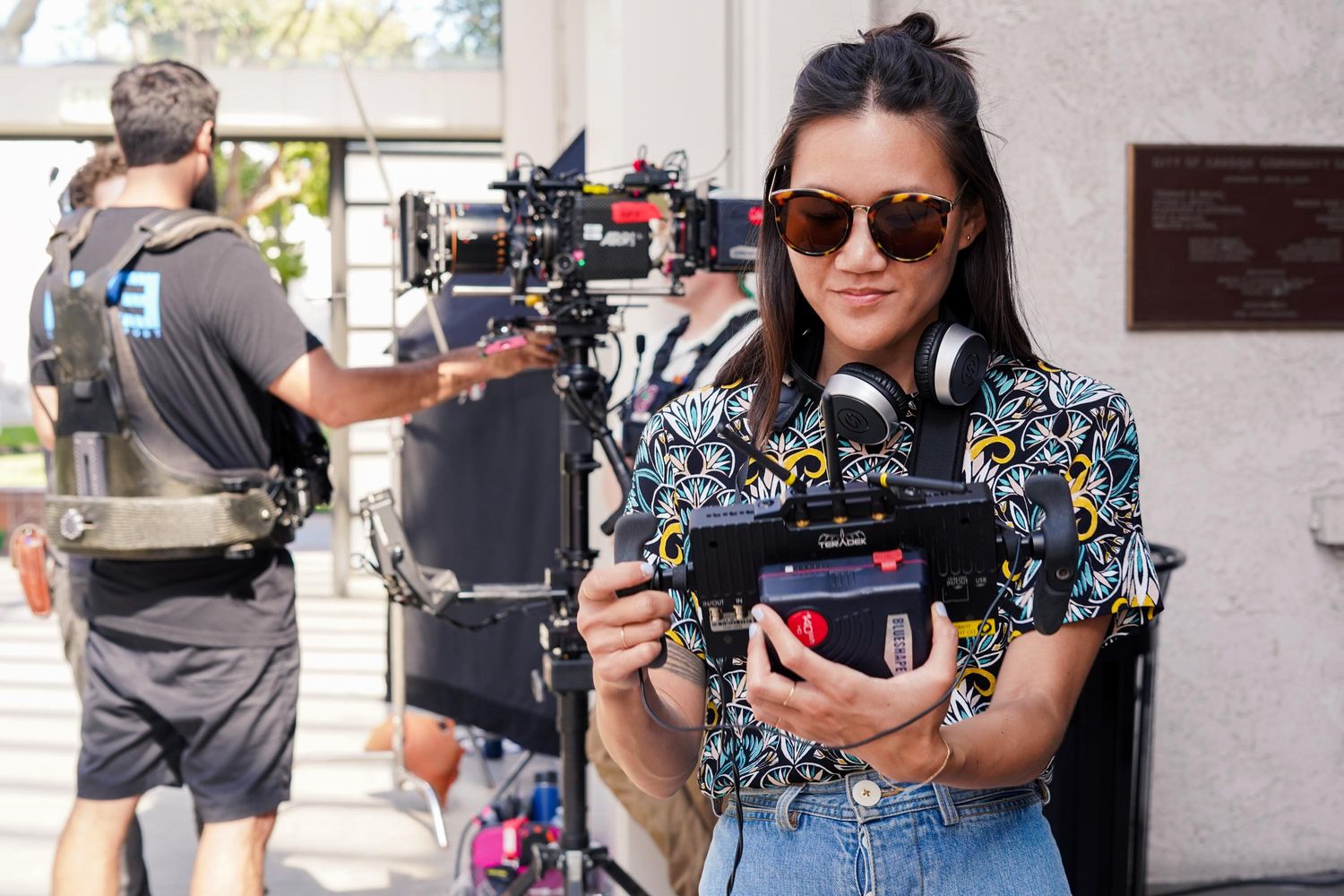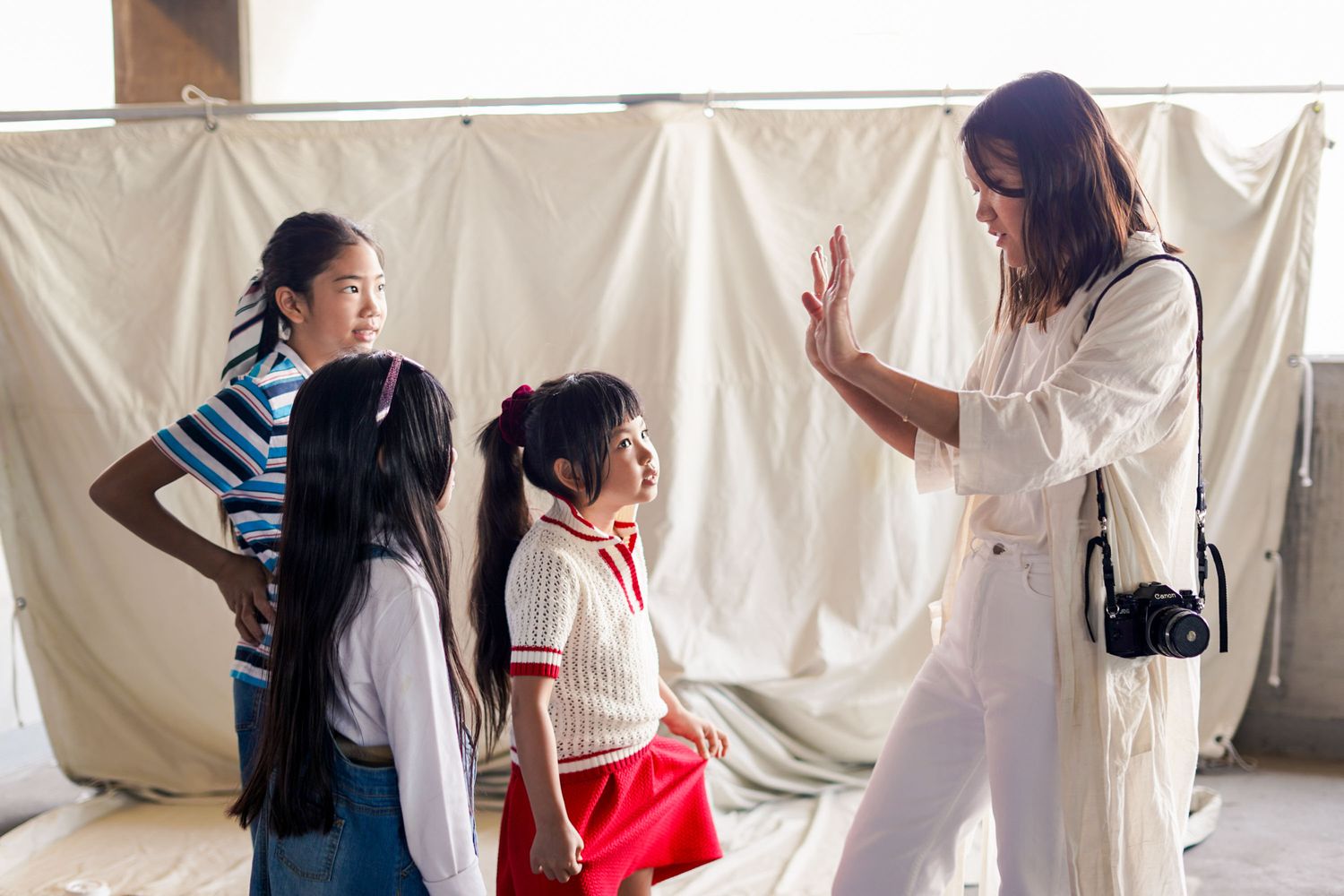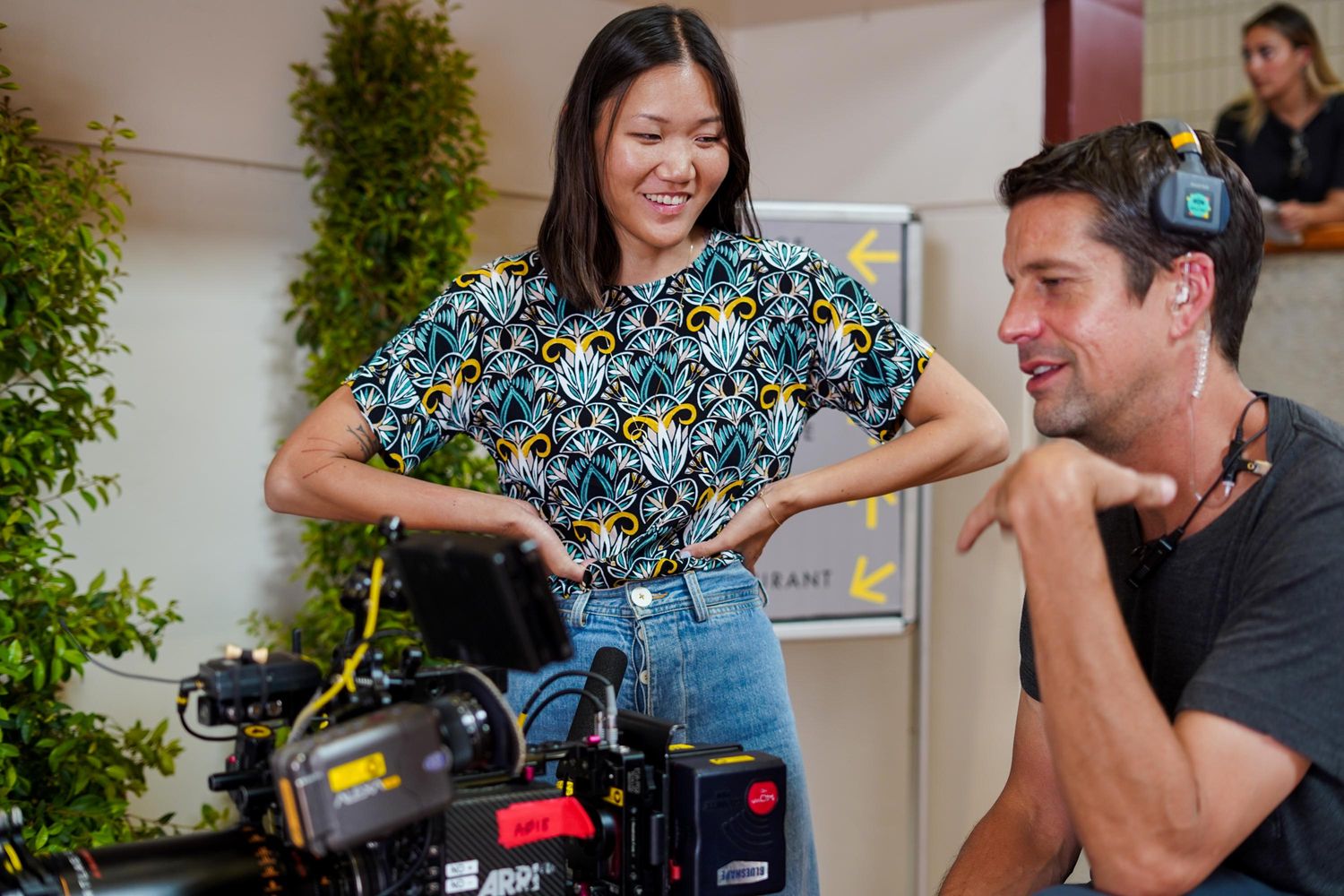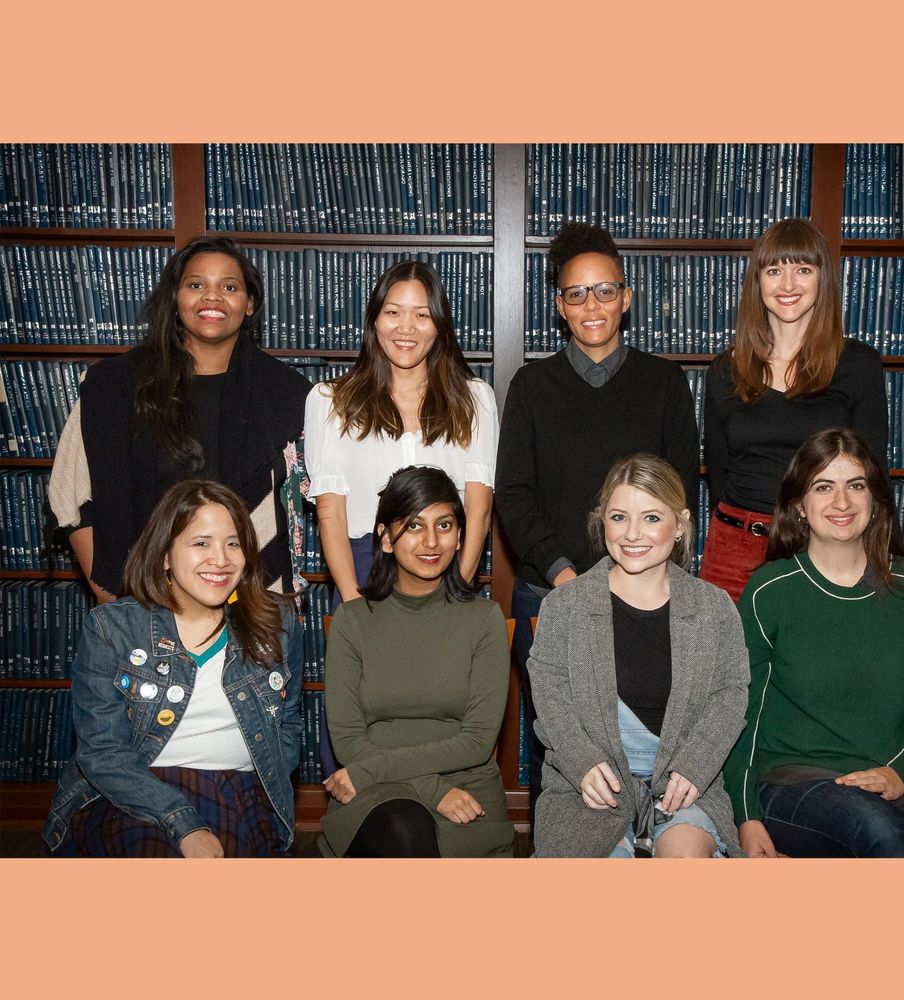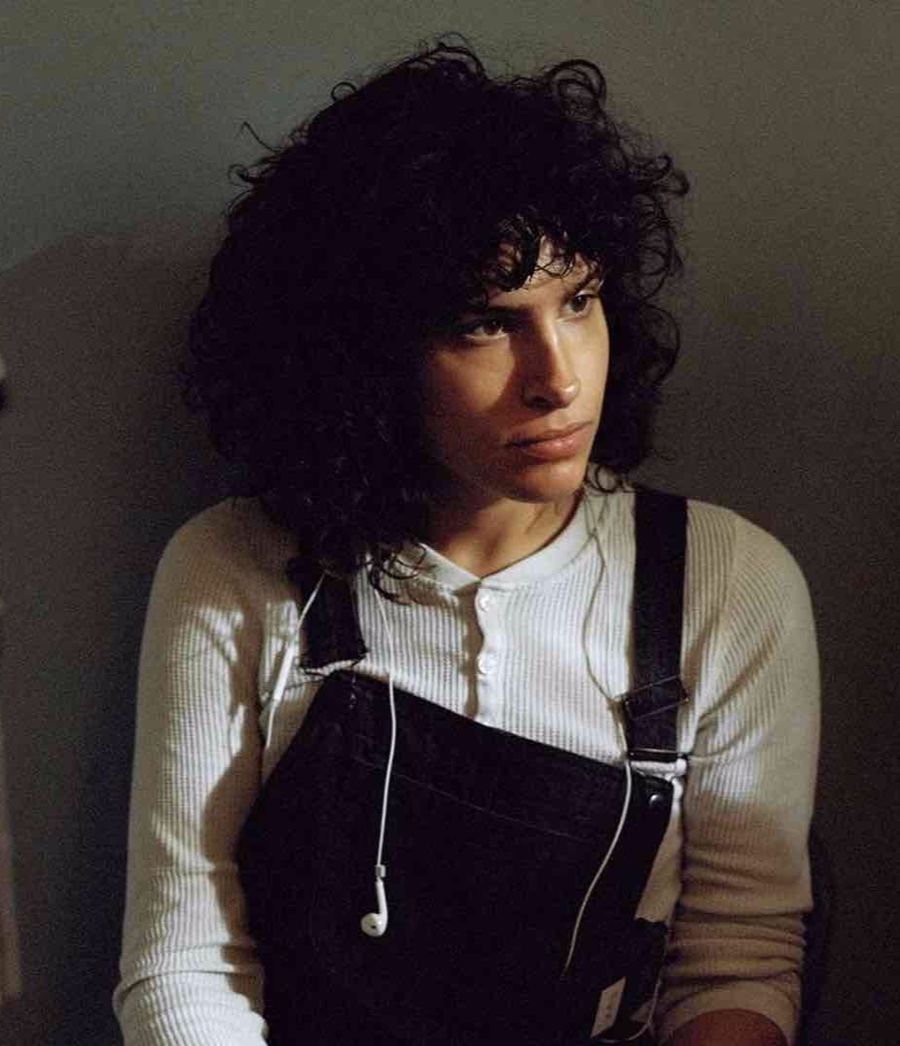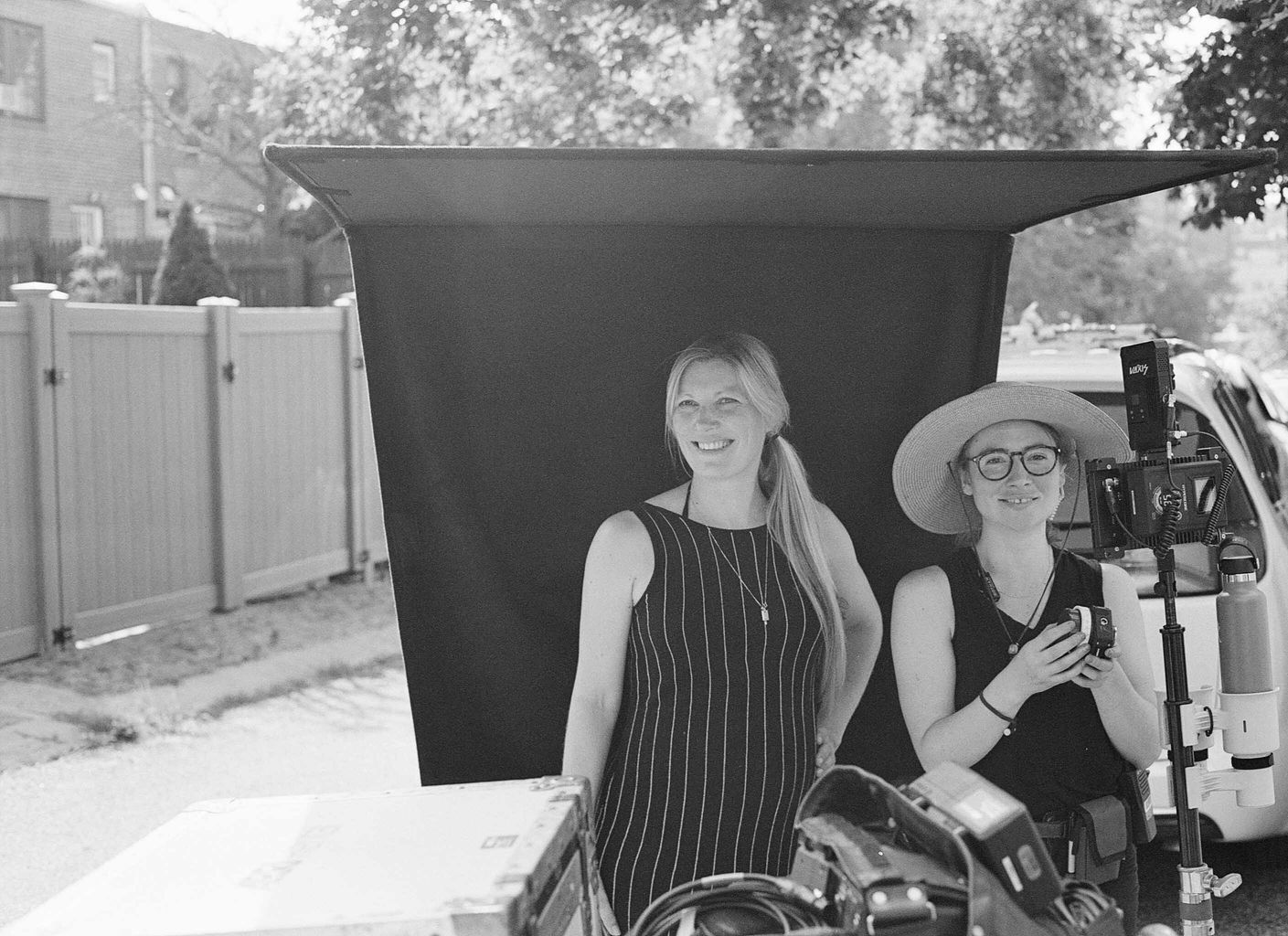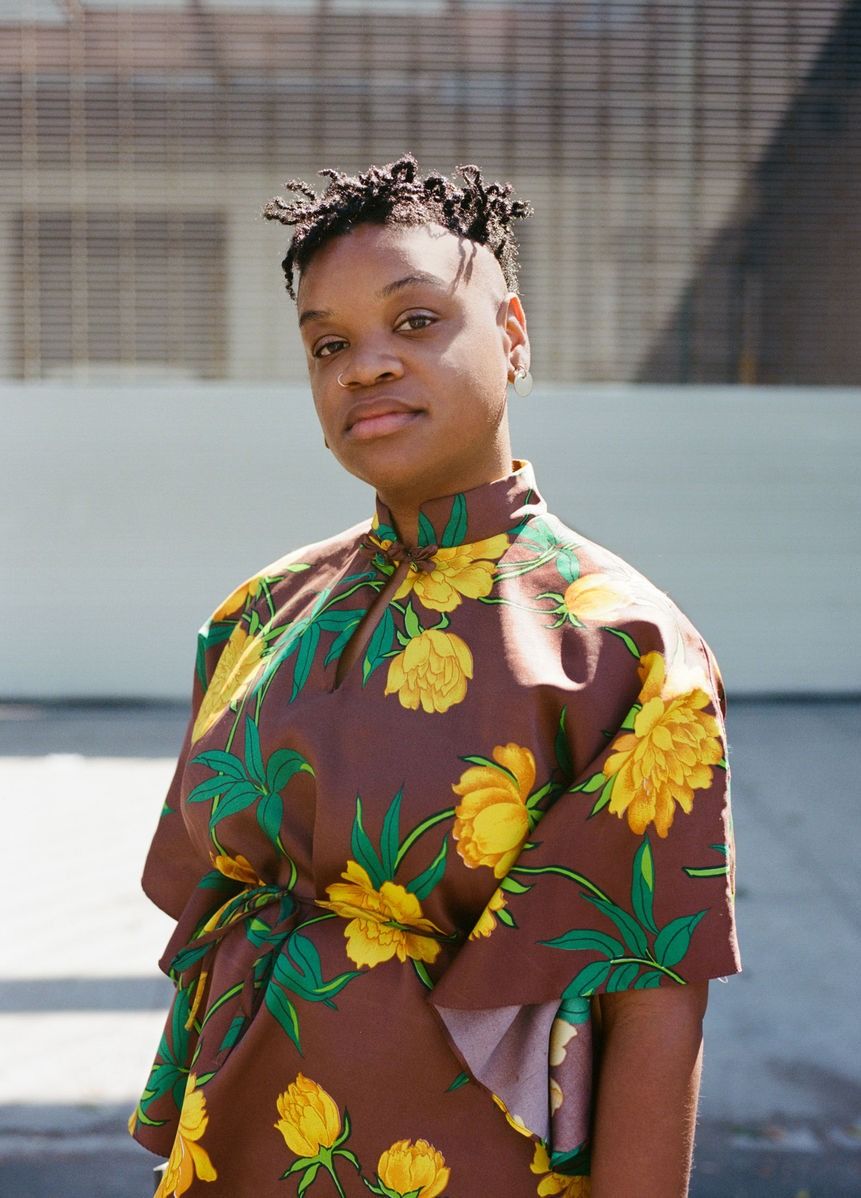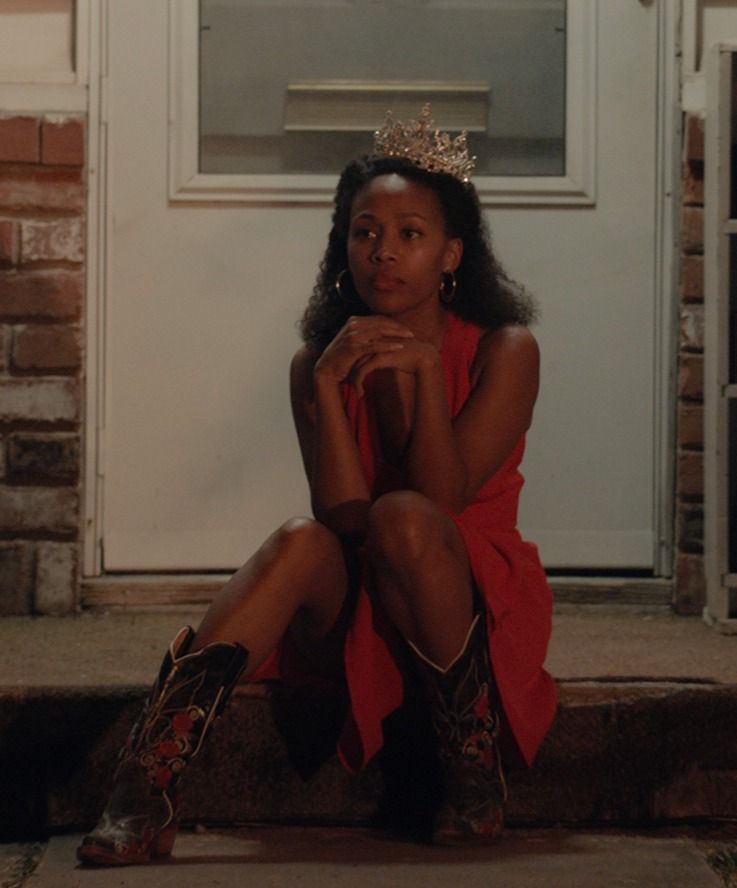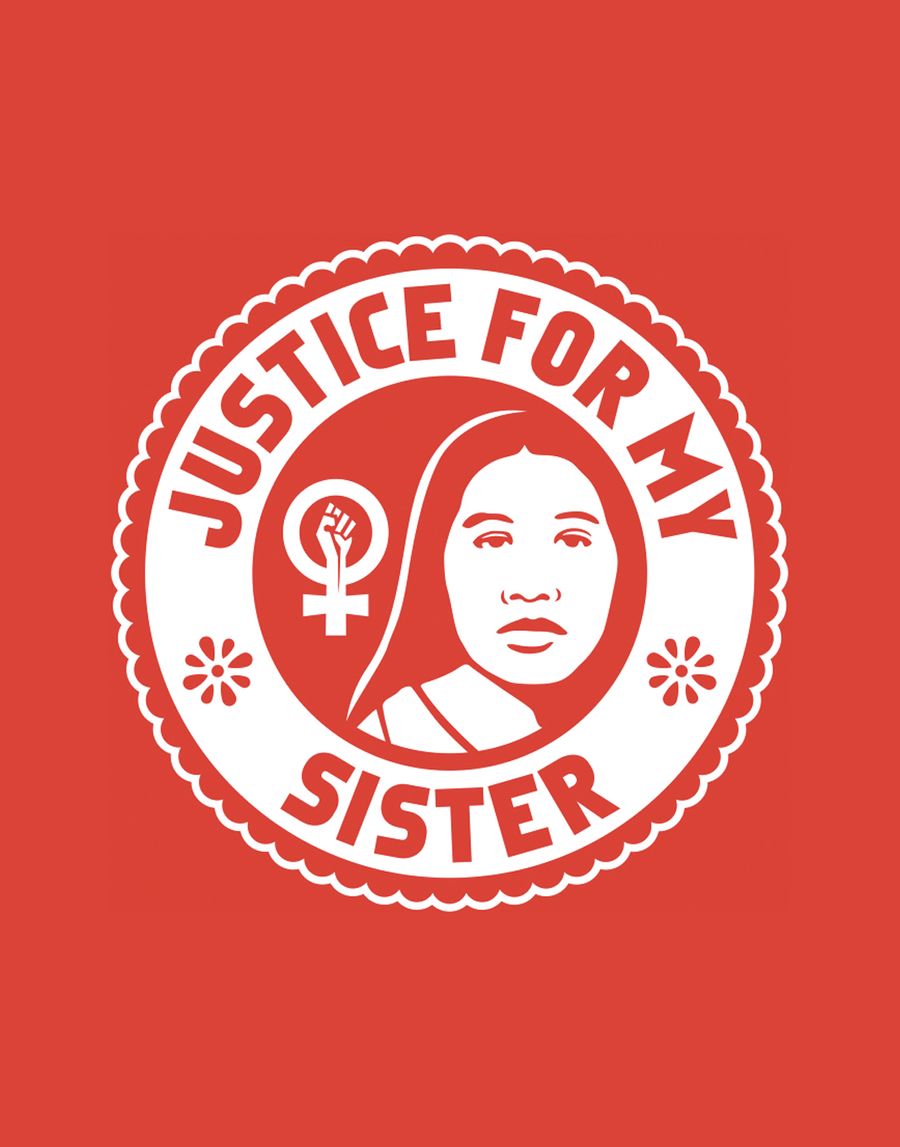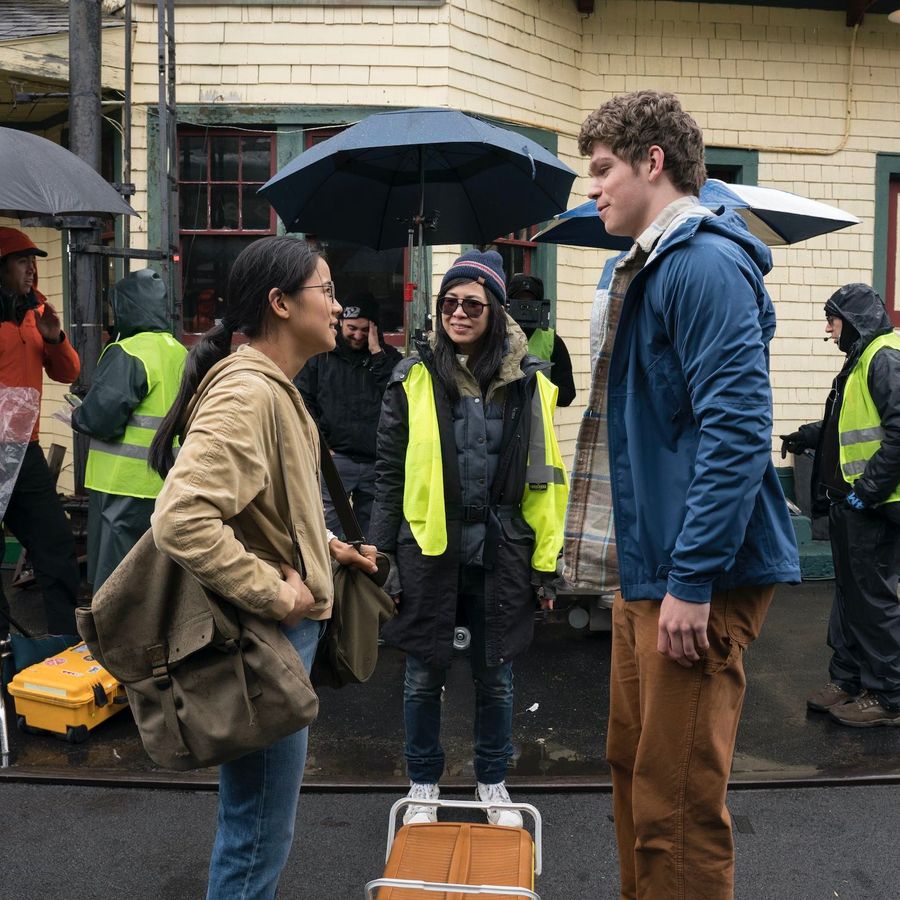Cover and Header Photo Courtesy of American Film Institute
Since 1974, the AFI Directing Workshop for Women has launched the careers of hundreds of women and gender nonbinary directors. Each year, the program mentors eight filmmakers through the full production process of directing a short film from script to screen, with the support and guidance of classes taught by industry legends. The AFI DWW program has educated over 350 filmmakers, including legends such as Maya Angelou and Anne Bancroft and some of today's most exciting voices, such as Tiffany Johnson, Bola Ogun, Leslie Linka Glatter, and Pippa Bianco.
Here, FTW introduces you to all eight directors of the Class of 2020—Ashley Eakin, Bridget Moloney, Lara Panah-Izadi, Marie Jamora, Nicole Taylor-Roberts, Revati Dhomse, Robin Cloud, and Tiffany Frances. Read on as each director opens up about how they became filmmakers, the inspiration behind their shorts made at AFI, and the stories they will go on to tell.
Head to the AFI official website here to view all eight films.
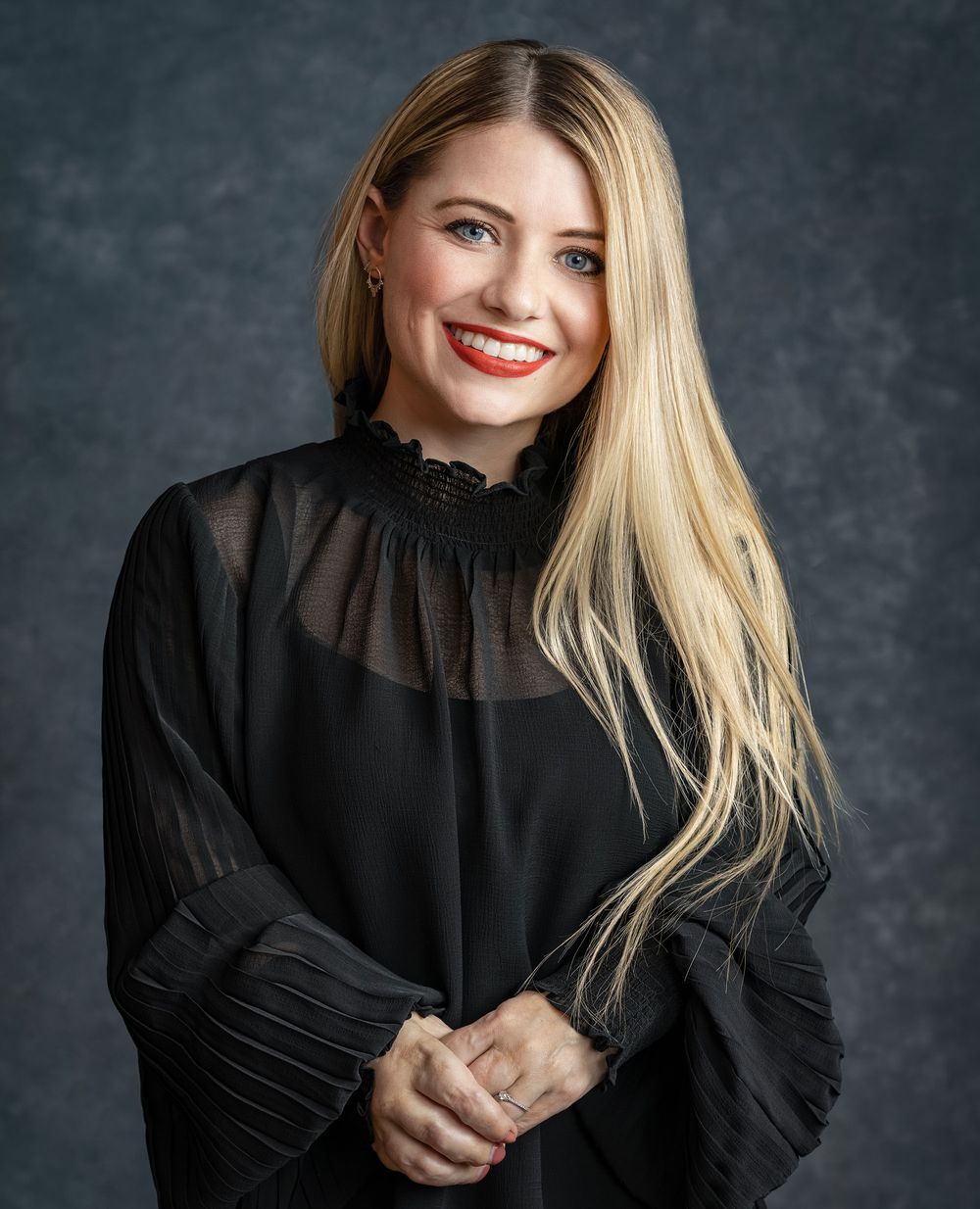
Ashley Eakin – Director of "Single"
Born in California and raised in Nebraska, Ashley Eakin is a writer-director based out of Los Angeles with a physical disability. Her project produced in the AFI Directing Workshop for Women was slated to have its world premiere at the SXSW 2020 Film Festival. Her project was also the recipient of the New York Women in Film: Loreen Arbus Disability Awareness grant.
Most recently, Eakin shadowed director Mark Pellington on the Quibi series SURVIVE, filmed in the Italian Alps starring Sophie Turner and Corey Hawkins. In 2017 she spent 5 months in Malaysia and Singapore working on Jon M. Chu’s film CRAZY RICH ASIANS. She also shadowed Chu during the production of the Freeform pilot GOOD TROUBLE, as well as assist with the development of a TV series sold to Apple.
Eakin’s 2018 short documentary THE DETAILS, featuring Henry Golding and Awkwafina was selected for the Hamilton Film Festival. Her narrative short film BLUE premiered at the 2019 LA Shorts Fest last summer and is currently on Amazon Prime.
In 2017 Eakin was featured in a SoulPancake video talking about her rare bone condition. The video went viral reaching over 50 million views. Her medical journey has immensely influenced her passion to pursue stories that advocate proper representation for people with disabilities. She is currently writing a coming-of-age feature film that disrupts the narrative of the disability community, inspired by her own life experiences.
Eakin is represented by Allen Fisher and Maggie Haskins at Artists First.
FTW: What made you want to be a filmmaker?
Ashley Eakin: I’ve worked in every capacity from reality TV to scripted TV to features assisting high level producers or directors. The last director I worked for was Jon Chu. I was on the journey of making Crazy Rich Asians from the very beginning, and I saw how important and revolutionary it was for the Asian American community. At the same time as the film’s premiere, I had made a video on SoulPancake that went viral. I was born with a rare bone disease called Ollier’s. I was talking about my experience of living with a rare bone disease and how I would hide it. It blew up and I was getting all these messages from people being like, "I’ve never seen someone like me." At the same time, Jon was getting very similar letters about Crazy Rich Asians. It was this weird mirroring of my personal journey and this huge movie, and it really inspired me to push for representation of people who have physical disabilities and differences. The narrative is very narrow; it’s either a character we feel really bad for or this crazy inspirational heroic character. I’m like, what about the middle man who’s just living a normal and regular life?
How has the AFI Directing Workshop shaped you both as an artist and a person?
I’ve worked as an assistant for other directors and get to see how they work, but it’s a totally different thing to see yourself as an individual, as a director. It’s something that even as women we feel like we need permission for. Even if that’s not the case, it’s really hard to believe it.
On the first day, the director of the program said, “Let go of the doubt, you are the director, you’re here. We picked you. Let go of that impostor syndrome. Leave it on the ground now and move forward because that’s the biggest thing holding you back, that you don’t believe that you could actually be a director of something big or have a successful career.” The confidence she instilled in us. It’s only eight women. It’s so intimate, getting to know these other women’s stories and how they work. Most of us had to apply to the program twice, so apply and don’t get discouraged.
What kinds of stories do you want to tell and how do you want to shape the world with your art?
I really want to tell stories that show more authentic, diverse representation of people with disabilities. I was so scared of my disability growing up and didn't want to identify with it because I never saw someone living that way. I didn’t get to see a character in a scenario that related to me. It pushes me to be a good example. Even on my social media, I’m way more open than I ever was because I’m like, “That 13-year-old girl that follows me needs to see that it’s okay to post something like that.” You have to show your own complexities. If there was some bad ass movie that had a girl who one arm, people would see it and get it. And then you would see a kid on the street with one arm and be reminded of that character you love. Films can create such an immediate acceptance of difference.
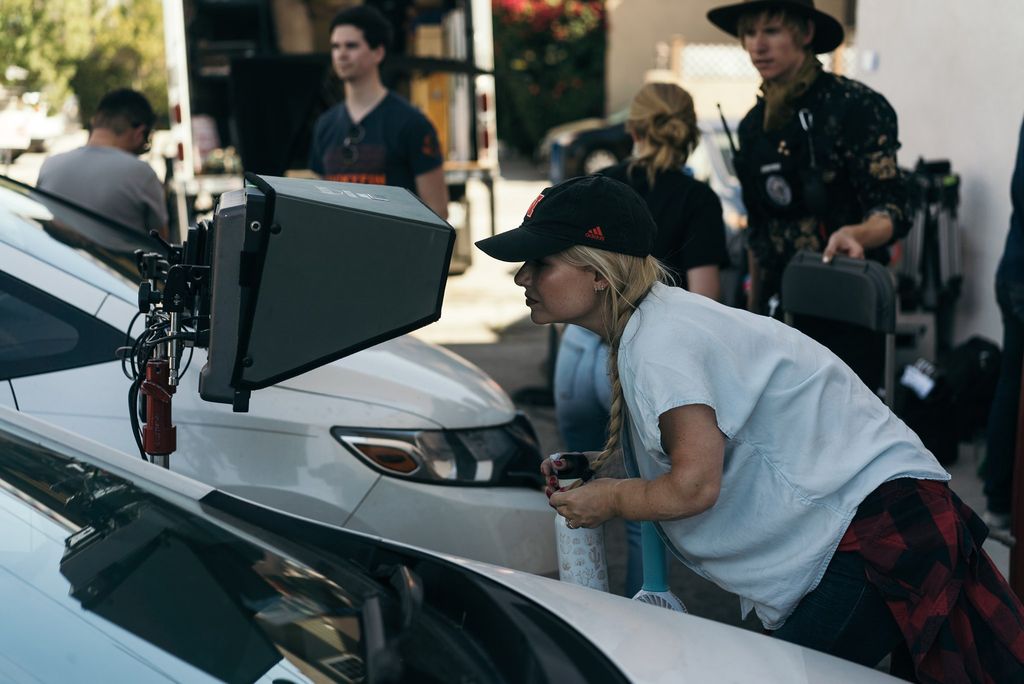

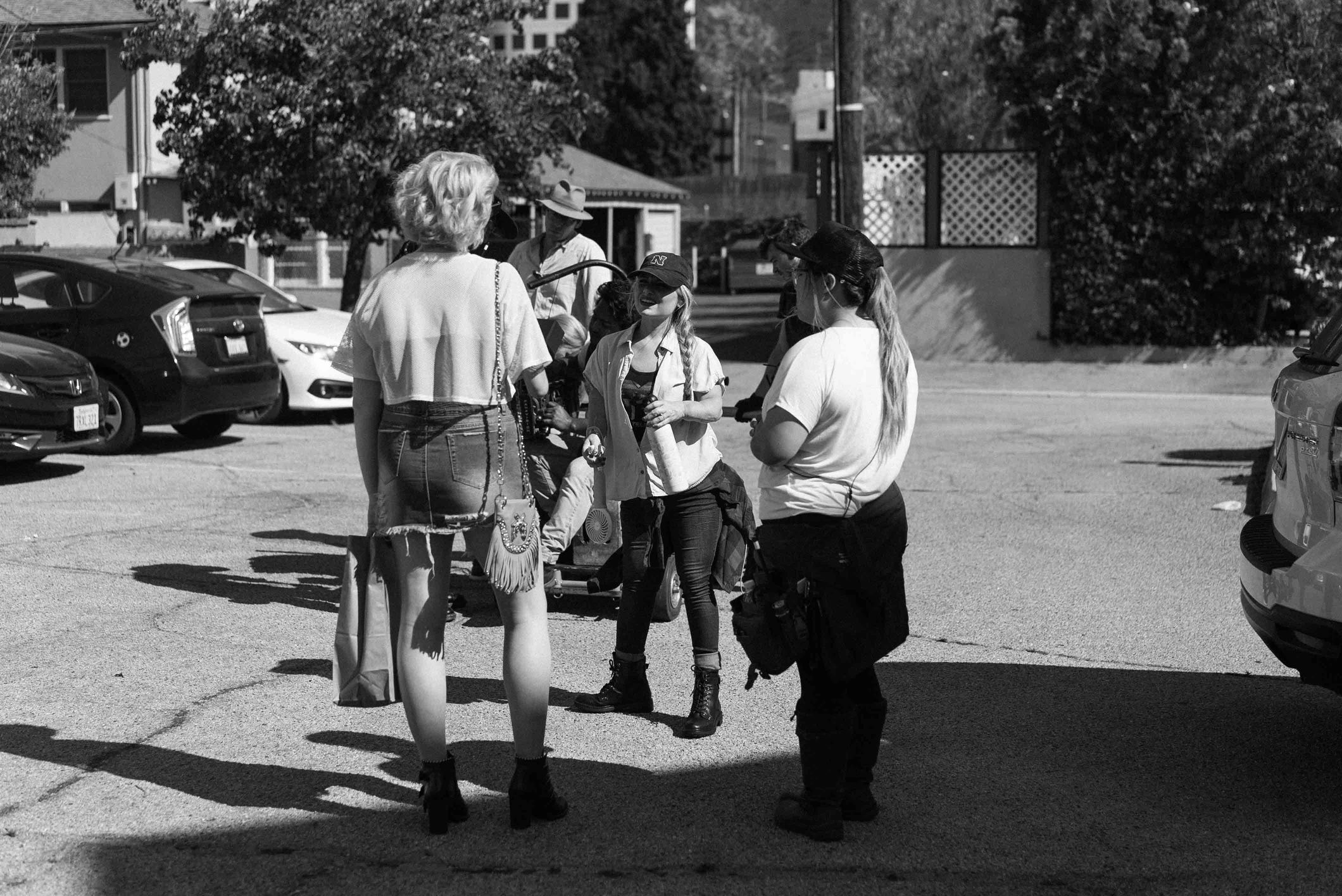
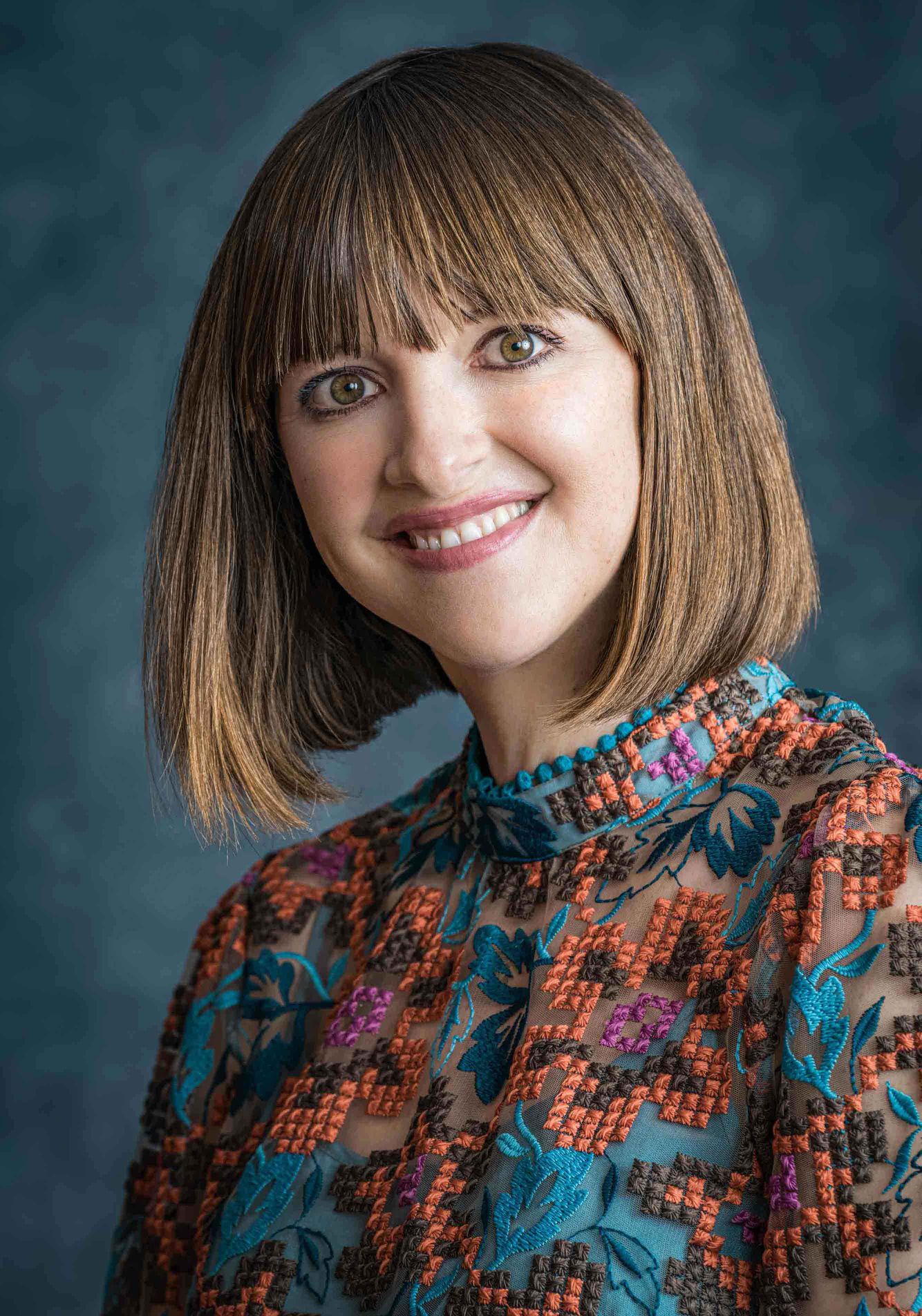
Bridget Moloney – Director of "Blocks"
Bridget Moloney is an award-winning writer and director working in television, film and commercials. The independent television pilot Bridget wrote and directed, I WAS A TEENAGE PILLOW QUEEN premiered at the 2018 Tribeca TV Festival. She is a current member of AFI’s Directing Workshop for Women for which she has written and directed a short film that will be premiering in the 2020 Sundance Film Festival. It will also exhibit at SXSW 2020. Bridget also directs commercials for large, nationally recognized brands–her latest being for Razor Scooters with Unicorns & Unicorns. As an actor, she’s appeared in over 40 commercials, many network and cable television shows, independent and studio films. As a playwright she won the Bennington Young Playwright competition. She also has a master’s in clinical psychology, that she only uses on set, and graduated with honors from Northwestern University. She lives in her hometown of Los Angeles with her husband and two young children.
She is represented by Cullen Conly at Mosaic and Susie Fox, Abby Glusker and Anna Flickinger at UTA.
FTW: What are your thoughts on the categorization of woman director? How has it affected you and your work, if at all?
Bridget Moloney: Relatively speaking, it’s a great time to be a woman director. But it’s also ridiculous. It could always be better, but I am fine with exploiting that as much as possible.
I’m very into my femaleness and AFI helped crystallize that for me. I’m interested in domestic anxiety, and realized that’s my thing. There are a lot of people who are interested in that, and not just people with children and not just women. You can have a strong voice without feeling like you’re a niche filmmaker.
Of course, you wonder if your film is interesting to anyone else. You have a moment where this idea is so close to you and you feel like surely everyone feels this way, too. And then you’re like oh, that’s not true. Everyone has very different life experiences and opinions and takes. It’s reassuring because even if multiple people have the same idea, we’re going to execute it really differently.
What kinds of stories do you want to tell and how do you want to shape the world with your art?
I’m very interested in a heightened reality take on everyday life. I’m pitching “Blocks” as a heightened reality, domestic anxiety period. I’m interested in how we visually externalize feelings we all have about romance, families, monogamy, and domestic struggles. How we run our lives right now in 2020. A world that is three feet off the ground.
What’s the best piece of advice you can give to aspiring directors?
As my friend who’s an osteopath said, “Just shine your weird light man.” You can just do you and it’s not going to be for everybody, but it’s so much better to not be for everyone while you’re being yourself than try to hit something and not succeed. I’m not saying don’t take notes, but if you want to tell a plastic block vomit story then tell it the best you can.
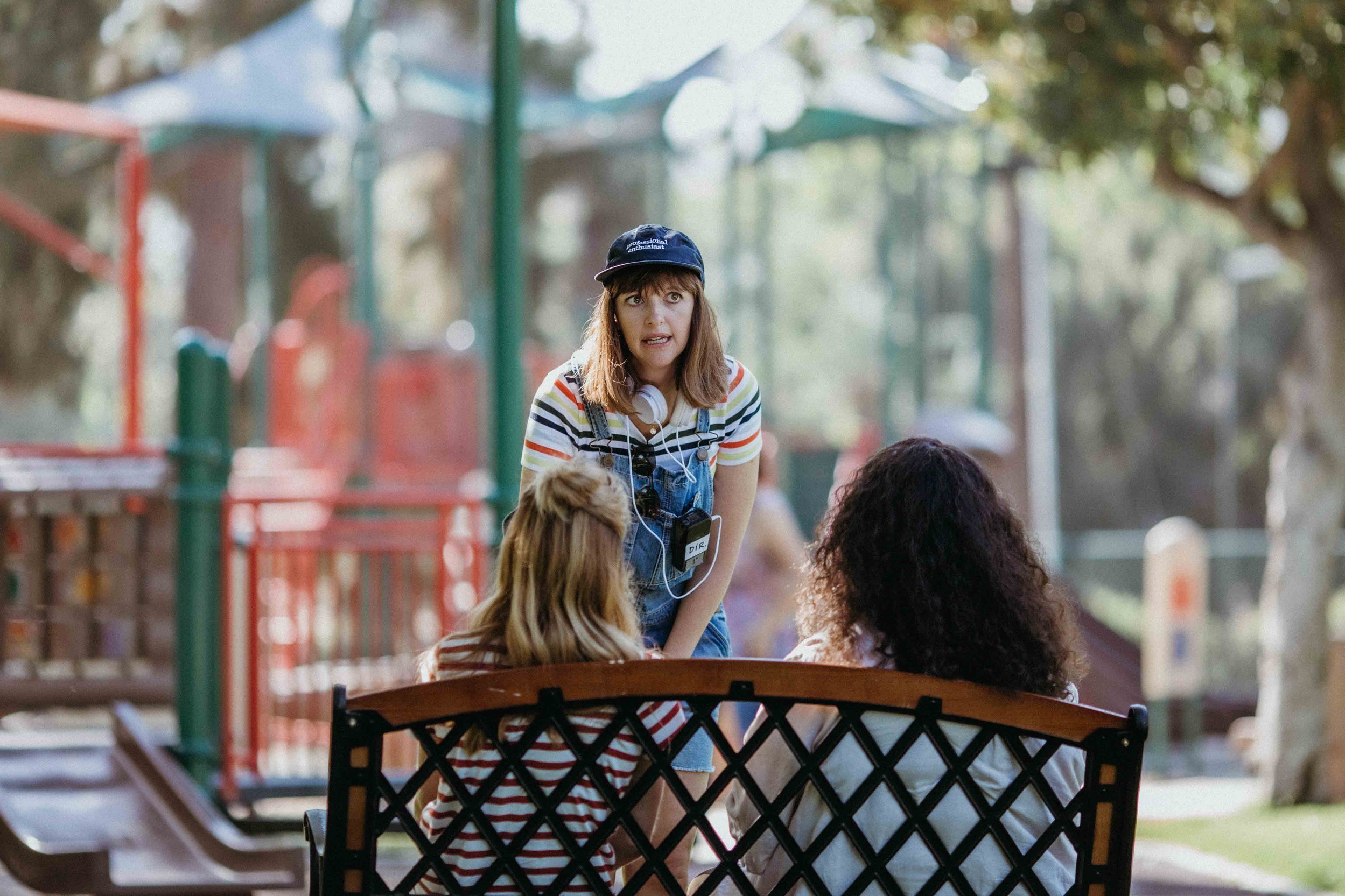
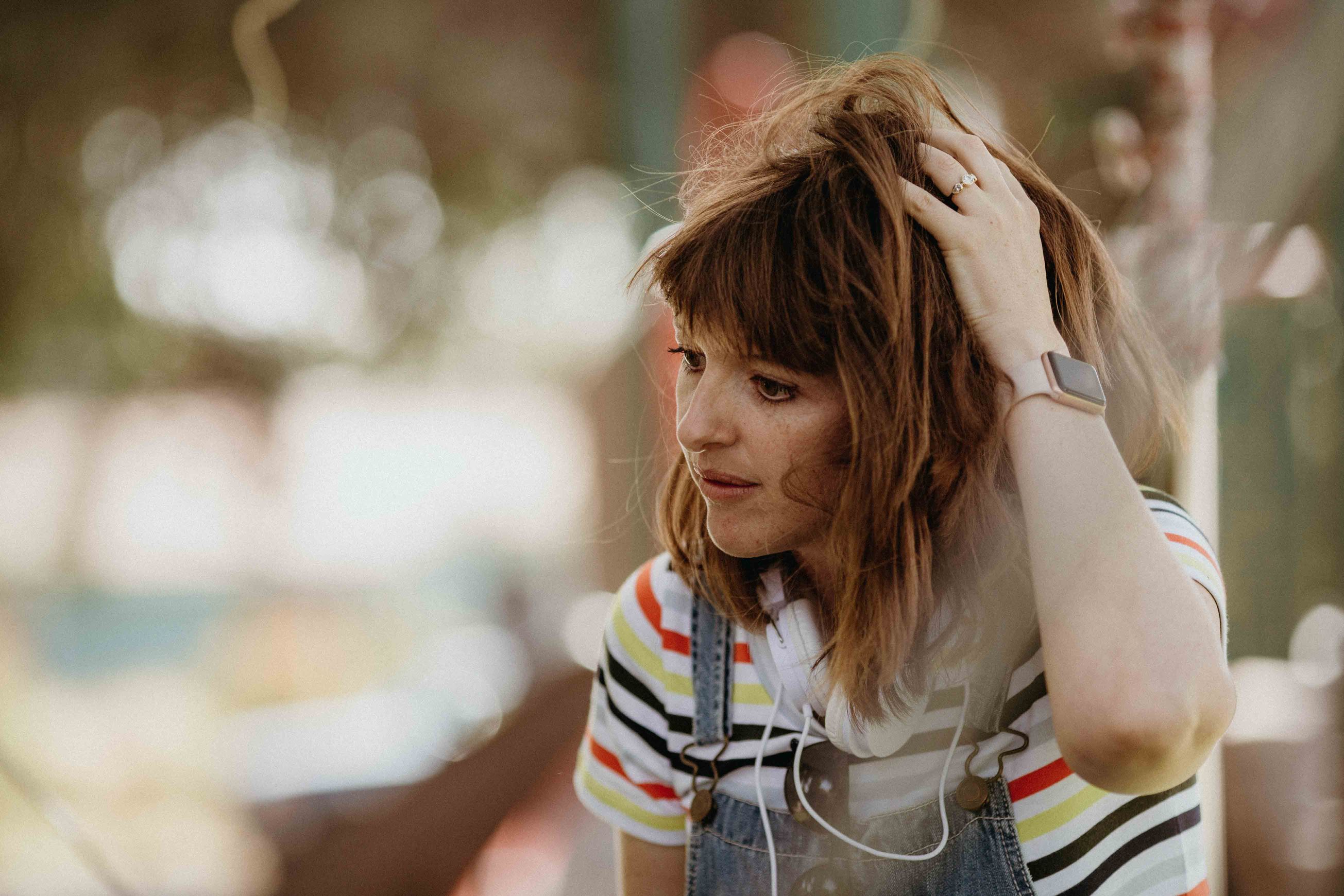
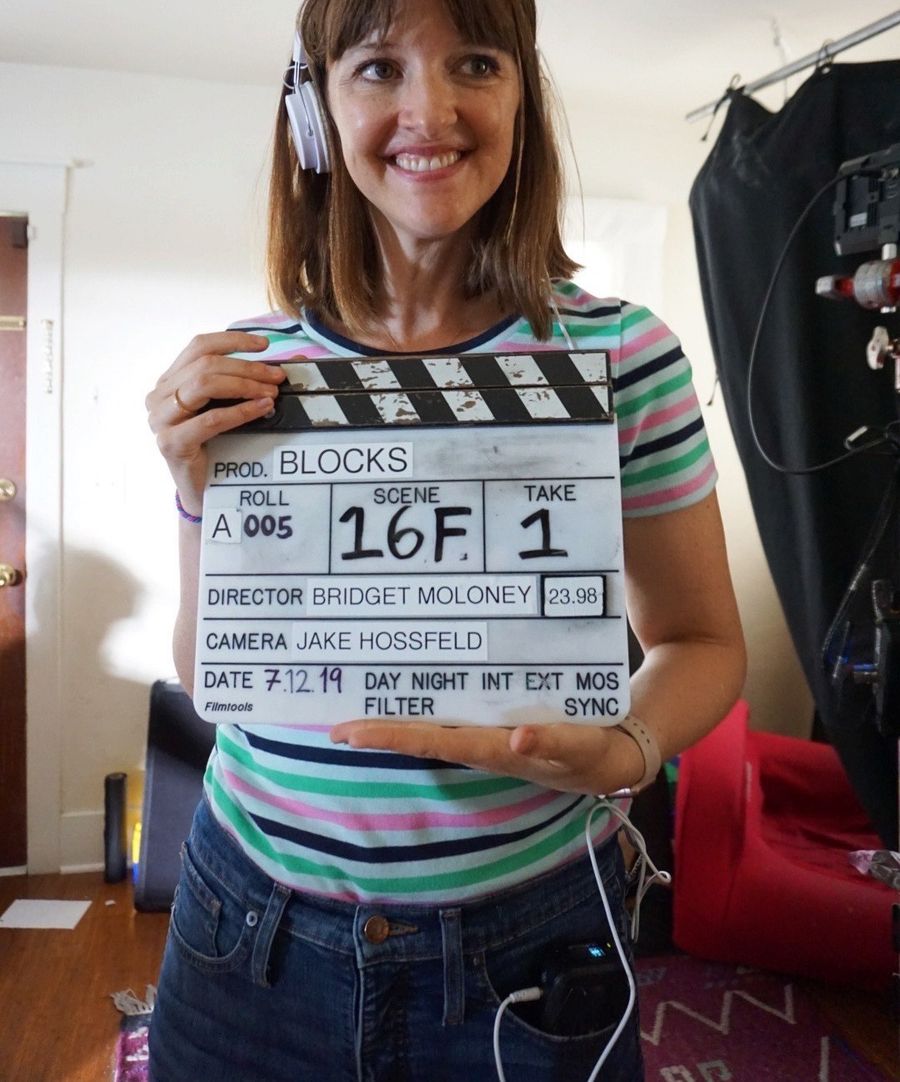
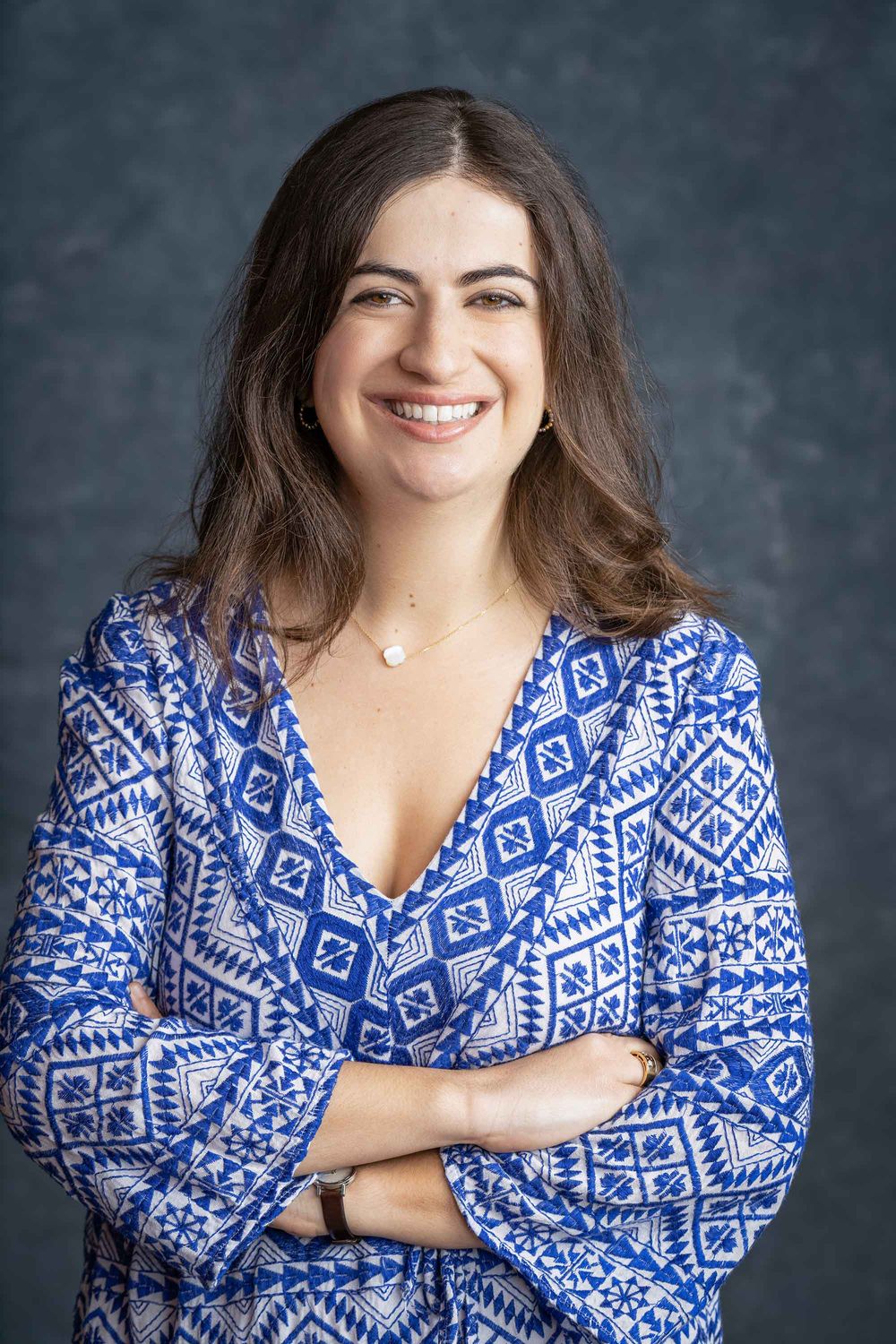
Lara Panah-Izadi – Director of "Summer of Snakes"
Lara Panah-Izadi is a French-American writer and director. She grew up in Paris and moved to the U.S. to study Mathematics & Philosophy and Theater Studies at Yale. In college, her first play, “In This World,” was selected for the Yale playwrights’ festival. She also directed two full-length opera productions and made an award-winning documentary based on Chekhov’s “The Seagull,” featuring Academy Award® winner Kevin Kline.
After college, Panah-Izadi worked on set for Barry Levinson and Quentin Tarantino. In 2017, she wrote and directed a narrative short film, CHLOE, inspired by THE TALENTED MR. RIPLEY but adapted to a female perspective. In 2018, she worked in creative development at Paramount Television to help discover book and story ideas to adapt into TV shows. Through the AFI Directing Workshop for Women, she wrote and directed SUMMER OF SNAKES, a short film inspired by Niki de Saint Phalle. She is currently developing two TV shows and a feature film.
FTW: What made you want to be a filmmaker?
Lara Panah-Izadi: I always cared about telling stories. I was a math and philosophy major and did a lot of theater on the side. When I was midway through college, a friend asked me to direct an opera and I fell in love with the process of putting a team together. I got the feeling that directing was my calling, so I started assisting on set to learn. My first job out of college was working as a Production Assistant on The Hateful Eight, and that’s what brought me to LA. It really matters to me to put my heart and soul into something that is going to be useful in the world. Film is impactful and when it's your passion, it doesn't feel like work.
What inspired your short?
It’s inspired by the life of the French-American artist, Niki de Saint Phalle. I went to the retrospective of her life’s work in Paris and discovered that she had been abused as a child, and that her artistic journey was a process of recovering from that through her art. I was so interested in her process, so I got in touch with her foundation, which is run by her granddaughter, Bloum. With her support, I was empowered to tell the story I wanted to tell.
I focused on this seminal moment that shaped her life and her art to explore the idea that you can overcome trauma through self-expression. We had a private screening of the short and there was a standing ovation. Niki’s granddaughter was there as well. I was very moved.
What are your thoughts on the categorization of woman director? How has it affected you and your work, if at all?
We need to encourage young female voices early on. Lots of men get to direct in their 20s. There are inspiring stories of filmmakers winning the Palme D'or at Cannes at like 26.* As a woman, people are more quick to say “Oh, you’re so young. You have so much time.” And yet all these men were never treated that way. It was more like, “Oh, you’re the young new Spielberg.” It’s hard. You need to have a certain amount of confidence, yet as a woman, you haven’t been told that you can be in that position enough.
*For example, Steven Soderbergh was 25 when he made Sex, Lies, and Videotape. Jane Campion is the only woman director to ever win the Palme D'or for The Piano at 39.

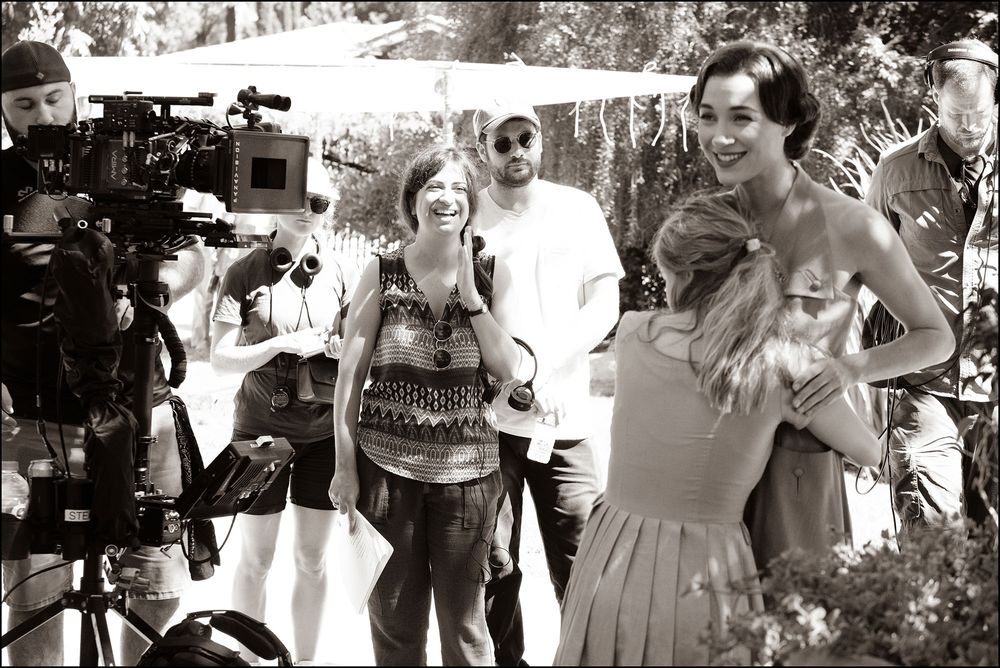
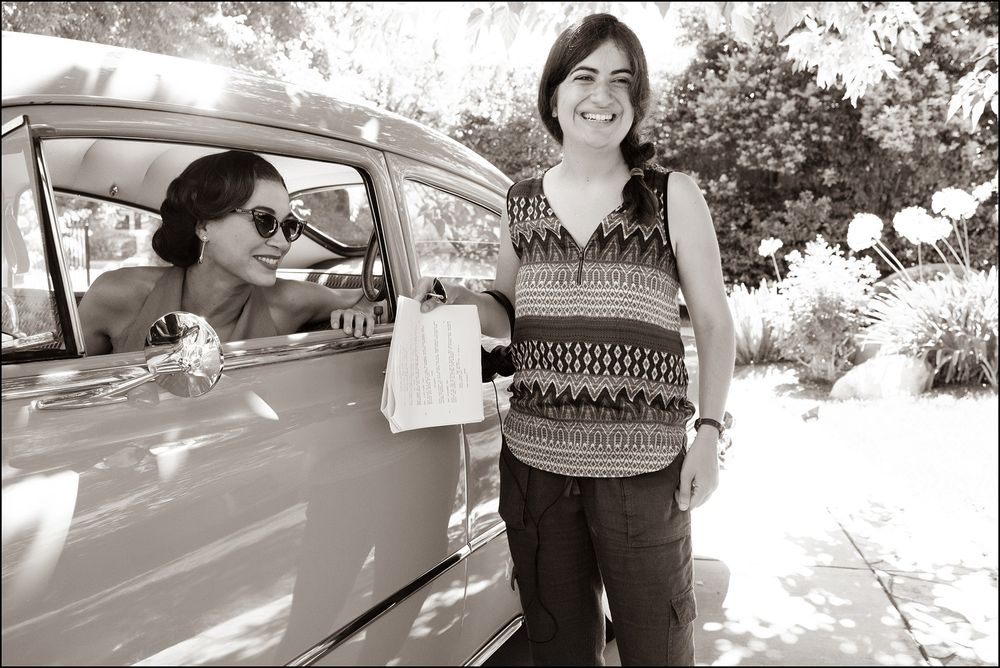
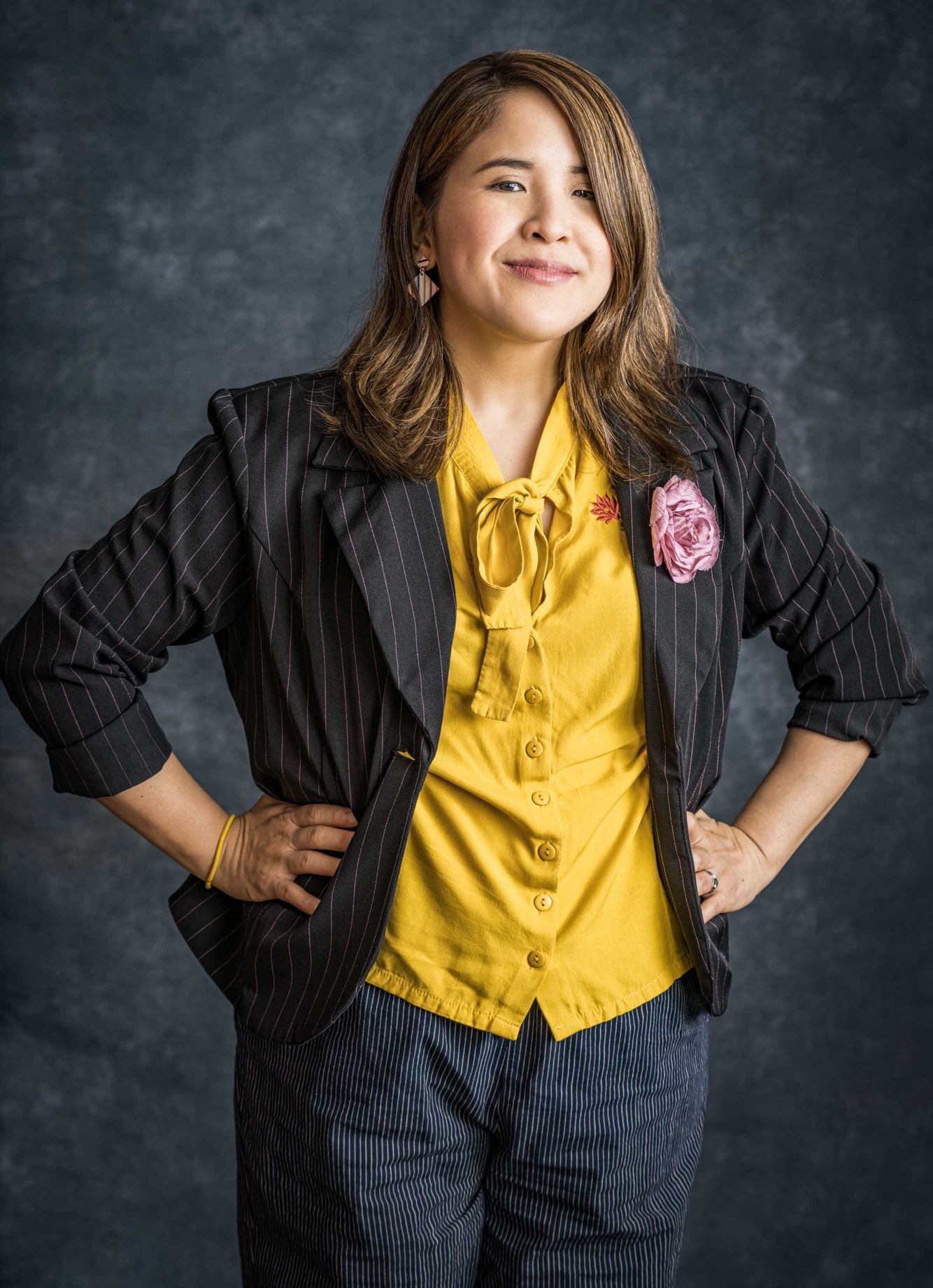
Marie Jamora – Director of "Harana"
Musician-director MARIE JAMORA was recently named one of the Five Visionary Asian-American Female Filmmakers in Kore Magazine’s ‘New Hollywood’ issue. Her short film, FLIP THE RECORD, screened in over thirty festivals worldwide, winning the Grand Jury Awards for “Best Narrative Short” at Urbanworld and the St. Louis International Film Festival. It was also submitted for consideration for the 90th Academy Awards. Her acclaimed first feature, WHAT ISN’T THERE, premiered at the Slamdance Film Festival and is considered one of the Top 10 Filipino Films of the 2010s. As the writer of both films, her stories often explore the rhythms of youth through music.
She is the executive producer and director of FAMILY STYLE, an Asian food and pop culture show with Justin Lin’s YOMYOMF and Warner Bros/Stage 13. Its first season can be binged on Facebook Watch and Youtube. They are now in production for their second season.
She began her career directing music videos during the golden age of the Philippine rock scene. After graduating from Columbia University with an MFA in Film, she returned to Manila to direct commercials and television.
Jamora became the first Filipina director to be accepted into AFI’s Directing Workshop for Women, where she wrote and directed HARANA, a proof of concept for her next feature film.
FTW: How has the AFI Directing Workshop shaped you both as an artist and a person?
Marie Jamora: It was a life-changing experience. I had never been in a room with just eight creative women helping each other out, collaborating, contributing, seeing and listening to your vision and trying their best to help you fulfill it. It made me courageous about my own opinions. Sometimes I just hold my tongue, but AFI made me fearless. Everyone wanted to hear what each other had to say. They gave me a new strength and confidence as a director, but put me on my A-game because you see all these women with different points of view who are pushing the spaces that they are working in. It makes you a better filmmaker. It was one of the best things I’ve ever done in my life.
What kinds of stories do you want to tell and how do you want to shape the world with your art?
The stories that I am developing are Filipino and Filipino American stories. We don’t have any content out there created for us, but there is a hunger and a thirst for stories about our community. You have films that come from the Philippines and stories from Filipinos in America. I want to create content that bridges our two countries since I am a Filipino that came from the Philippines and now lives in America.
What’s the best piece of advice you can give to aspiring directors?
My mentor, Marilou Diaz-Abaya, taught everybody to make movies with heart. I have followed that and it’s never led me astray. When you’ve made a movie with your heart and voice, somebody’s out there who will really appreciate the film you’ve made. There’s lasting power in that.

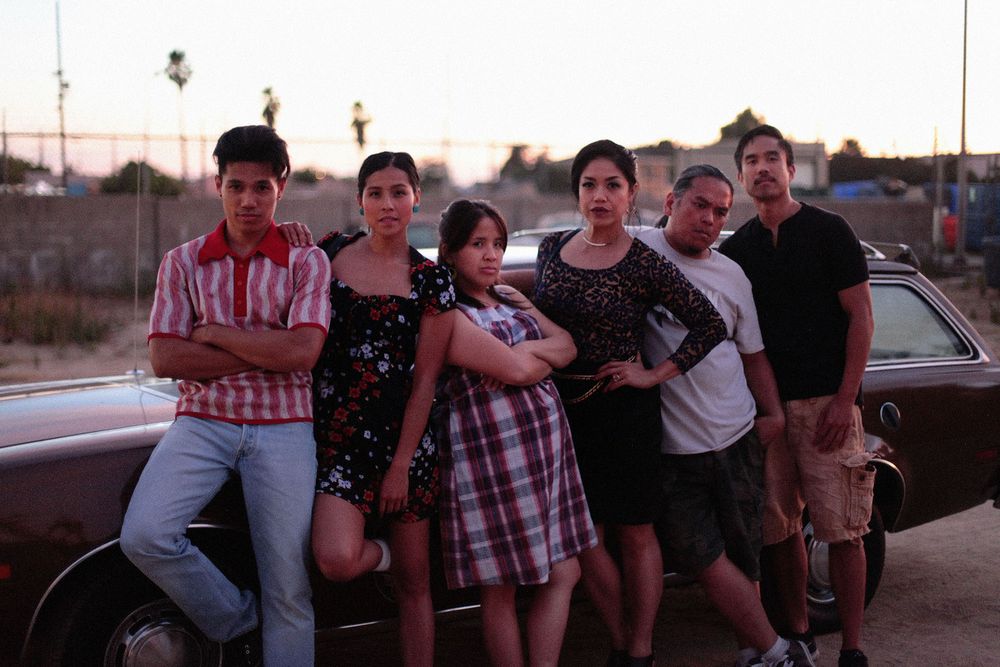
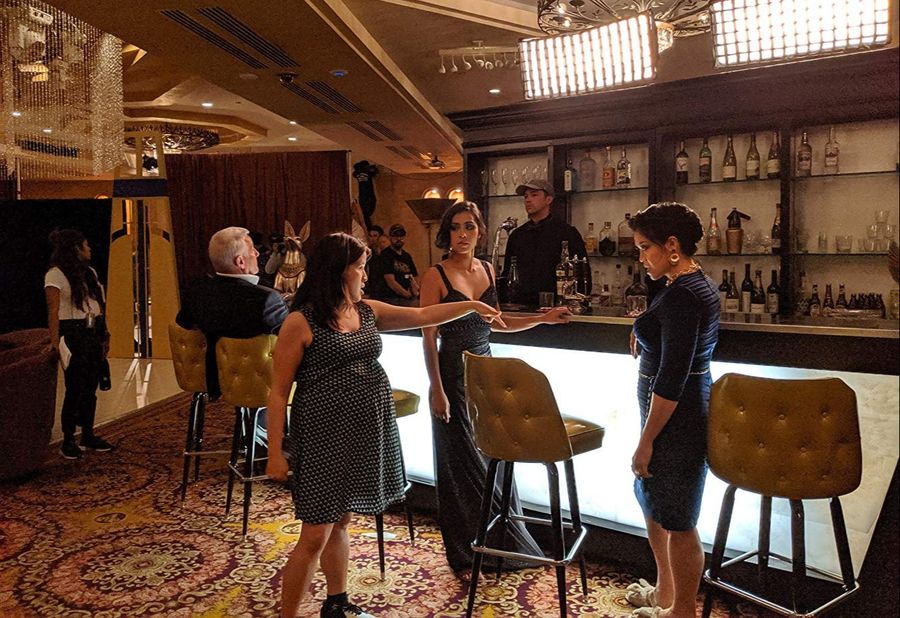
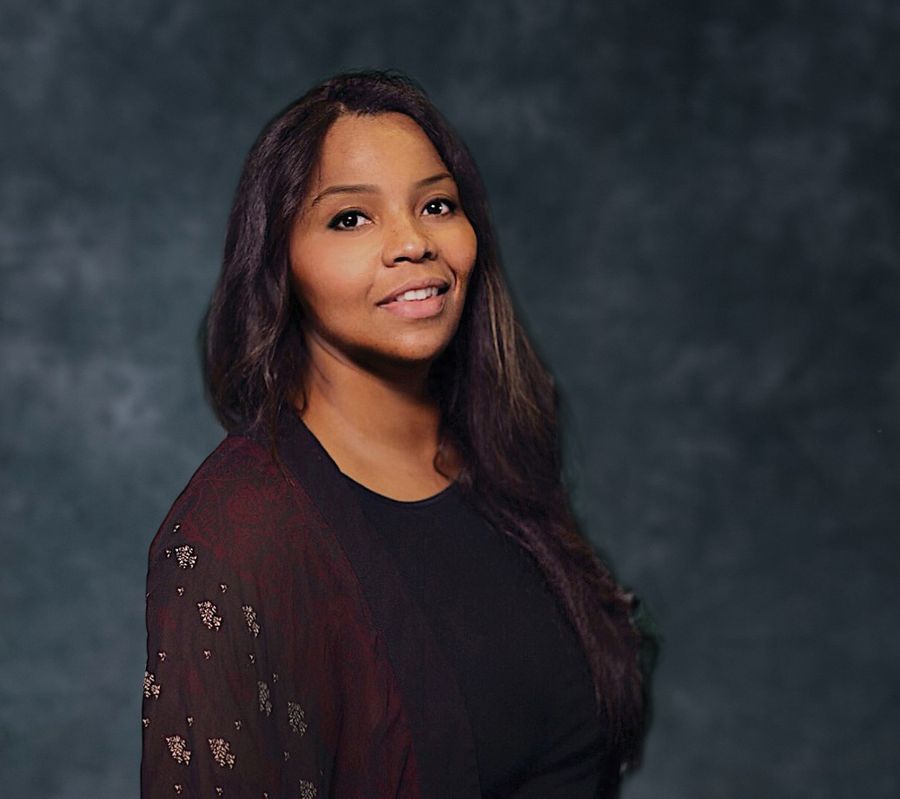
Nicole Taylor-Roberts – Director of "410 Stamped"
Nicole Taylor-Roberts got her professional start apprenticing with film and commercial directors at Smuggler and Tool of North America in the early 2000s. She participated in the Sony Picture Television Diverse Directing Program and the NALIP Diverse Women in Media Directing Workshop, and her pilot “Cabbie Mamis” was a semi-finalist in the MADE IN NY Writer’s Room.
Taylor-Roberts directs, writes and produces film, television, commercials and branded content. Her award-winning shorts have collectively screened at prestigious film festivals that include Santa Barbara International Film Festival, Sundance, San Diego Film Festival and Urbanworld. Her work has also been featured in FADER Magazine, GQ and showcases by HBO and HBO Latino.
She wrote and directed THE BATTLE OF LEXI SMITH, a short for an all-black woman anthology for BET Her. The story follows the emotional transformation of a cynical stand-up comic who masks her pain with humor when she learns that her breast cancer has returned to claim her one good boob. It’s a comedy — a black one. When she is not writing comedy about POC womenfolk, she is crafting serious dramas about them. Her feature screenplay “A Girl from Haiti” won the Grand Prize in the WeScreenplay Diverse Voices Competition, supported by ARRAY. Taylor-Roberts is a sought-after creative mind that has a knack for compelling storytelling.
Her AFI Directing Workshop for Women short film, 410 STAMPED, starring Eden Duncan Smith, was supported by a grant from the Will and Jada Smith Foundation. Taylor-Roberts is an alumna of Northwestern University Radio/Television/Film Program and Columbia University School of the Arts MFA Film Program.
FTW: What made you want to be a filmmaker?
Nicole Taylor-Roberts: My family has always been in the arts and music. I wanted to be a singer or an actress at some point, but then I realized that I could be the person behind the scenes. I learned the craft of filmmaking when I was forced into a telemedia class in high school. I started making short films and learned the language of film.
That’s when I got my first film award from ACT-SO and the NAACP. It was a competition to help kids get funds for college. I competed for two years. The first year I just competed for visual arts because I didn’t think that my short films were good enough. I was the only woman and the only Black woman in my classes, fighting to have my voice heard. The second year, I won an award and the person who handed me that award was John Singleton. He said, “You got it.” I was 18 or 19, and had never won anything and the first thing I win is a gold medal from John Singleton. I was like, okay, maybe there’s a purpose for me. It was the most insane and validating thing.
You’re trying to make a 12-hour day, what’s the one thing you sacrifice to get your crew home in time?
As long as I can streamline and get to the emotion of the scene, I’m willing to sacrifice all the extra lines and shots I have. Most of the film takes place at night, so we really had to be on our game. There were a lot of compromises made to make sure that we met our day.
What are your thoughts on the categorization of woman director? How has it affected you and your work, if at all?
It’s so great that there is visibility on women directors, but I would like to see it more in practice than theory. We were always here, just no one was paying attention to us and what we had to say. It’s important that all shades of women have an opportunity to shine without an agenda behind it.
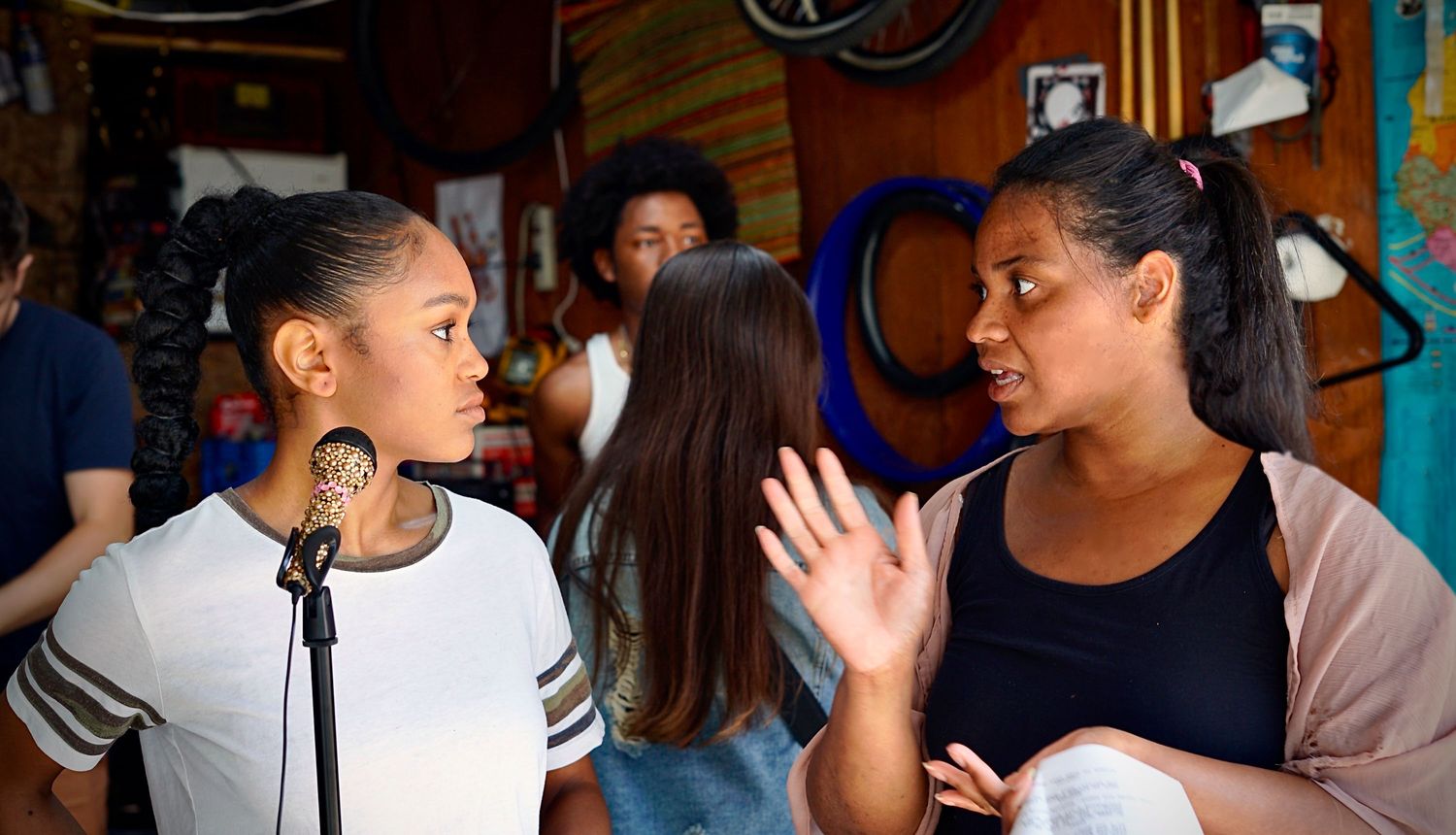
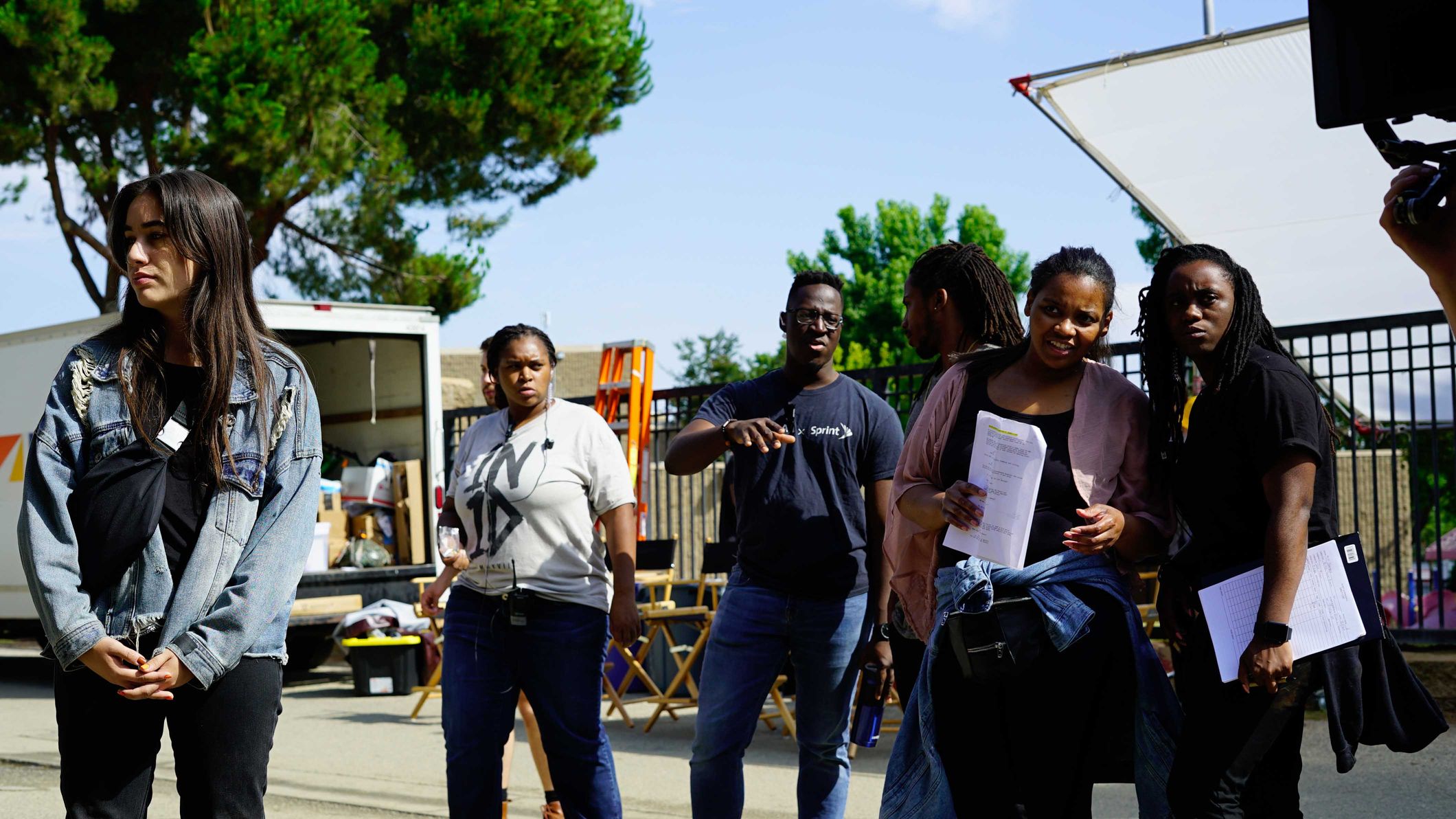
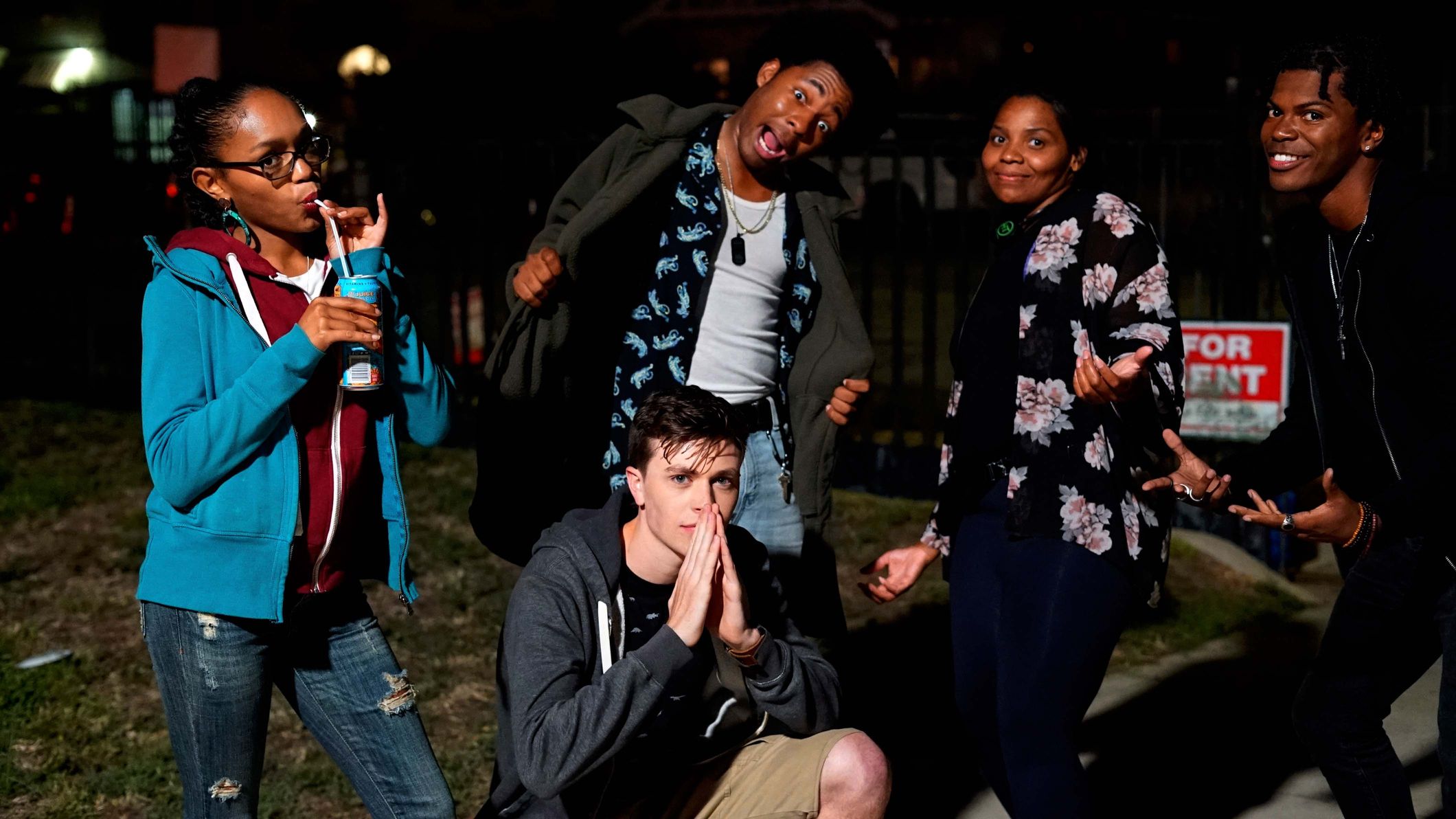
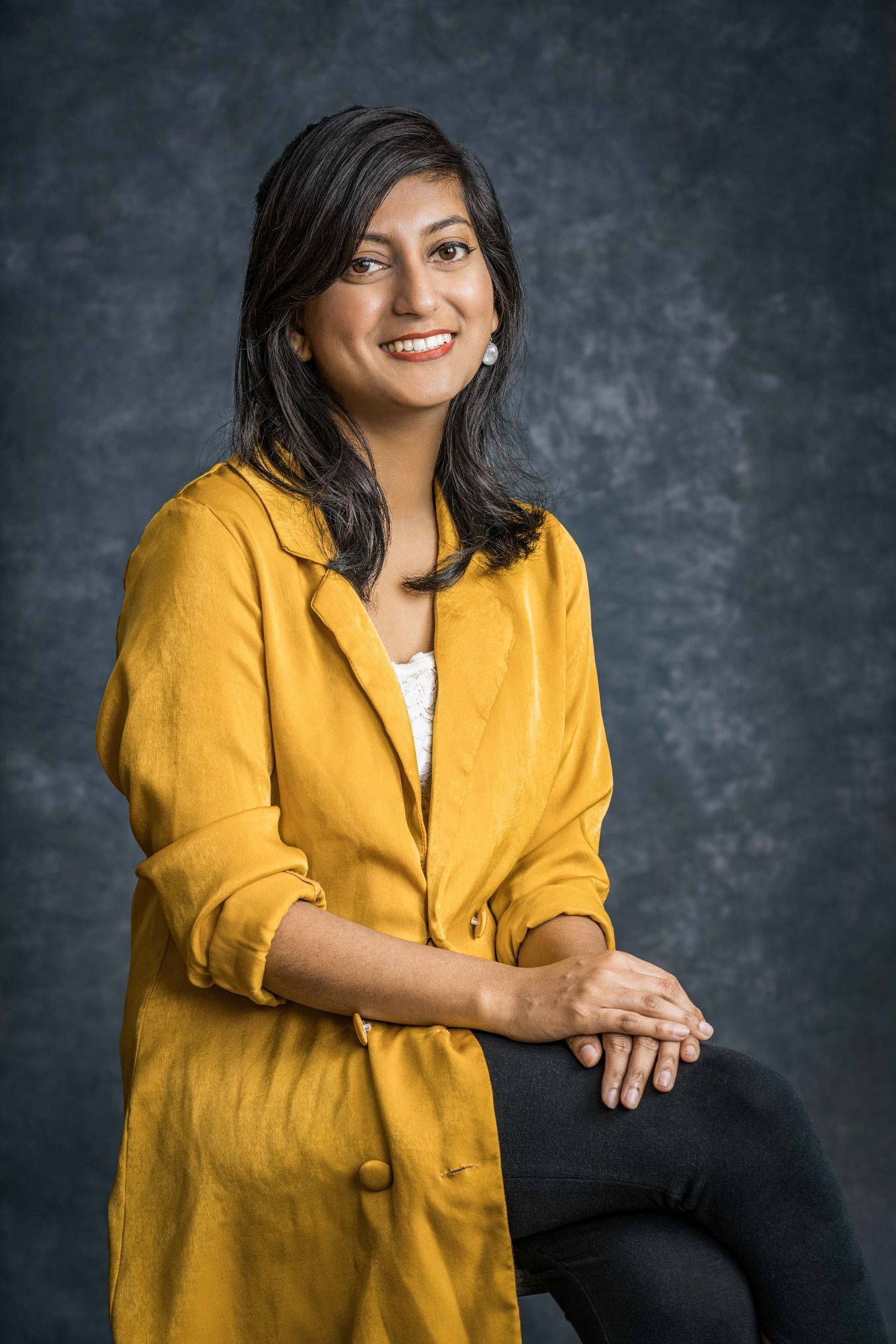
Revati Dhomse – Director of "Bhaag"
Listed as one of Variety’s 110 “Students to Watch” in their Educational Impact report of 2015, Revati Dhomse is a writer and director living in Los Angeles. Born in Mumbai and raised in California’s Silicon Valley, Dhomse sees herself as a child of two worlds. Her undergraduate capstone project THE DEATH OF COLM CANTER went on to receive praise by Cinewomen magazine in which they called it a “technically audacious and emotionally gripping film.” The feature version that Dhomse co-wrote explored similar themes of motherhood and duty and went on to earn the rank of quarterfinalist in the Academy Nicholl Fellowships in 2018. “The Death of Colm Canter” was awarded the Barry Josephson Screenwriting Fellowship at the Austin Film Festival in the same year. Dhomse and her writing partner’s pieces “The Truth” and “The Orpheus Lemon Amazing Mystery Journey” also gained the Austin Film Festival’s attention. Dhomse enjoys exploring themes of womanhood through magical realism and heightened genres in her art. Dhomse currently works as a coordinator for original series development at Nickelodeon.
FTW: What made you want to be a filmmaker?
Revati Dhomse: There wasn’t any one thing that made me want to be a filmmaker; it was more the slow realization that nothing else would really make me as happy. Stories are how I've always communicated with the world around me and film was a way to concretely exist in a world that kept trying to erase me.
What kinds of stories do you want to tell and how do you want to shape the world with your art?
Word on the street is Taika Waititi pitched his vision for Thor: Ragnarok to Led Zeppelin’s “Immigrant Song.” Imagine that for a second. That single image is the perfect snapshot of not only the kinds of movies I want to tell but how I want to tell them. I want to be able to play in high-concept, genre sandboxes that I can bring my identity and individuality to. I want to be seen as worthy of being able to handle such franchises. I want to contribute to the normalization of marginalized voices being able to tell weird stories.
You’re trying to make a 12-hour day, what’s the one thing you sacrifice to get your crew home in time?
My words. Screenwriting is the most economic form of writing. As a writer I spend so much time writing and rewriting the words on a page. But making that transition from writer to director is being willing and able to throw all those carefully chosen words out the window at a moment’s notice.
What’s the best piece of advice you can give to aspiring directors?
Make bad art! It’s far better to try something bold and have it royally suck than to create something that lives in mediocrity. I do believe that cis men are given more space to fail than women. A man can direct a film that can bomb at the box office and still be given a tentpole only a few months later. If you have the power to do so, help create spaces where women can and are allowed to fail spectacularly.

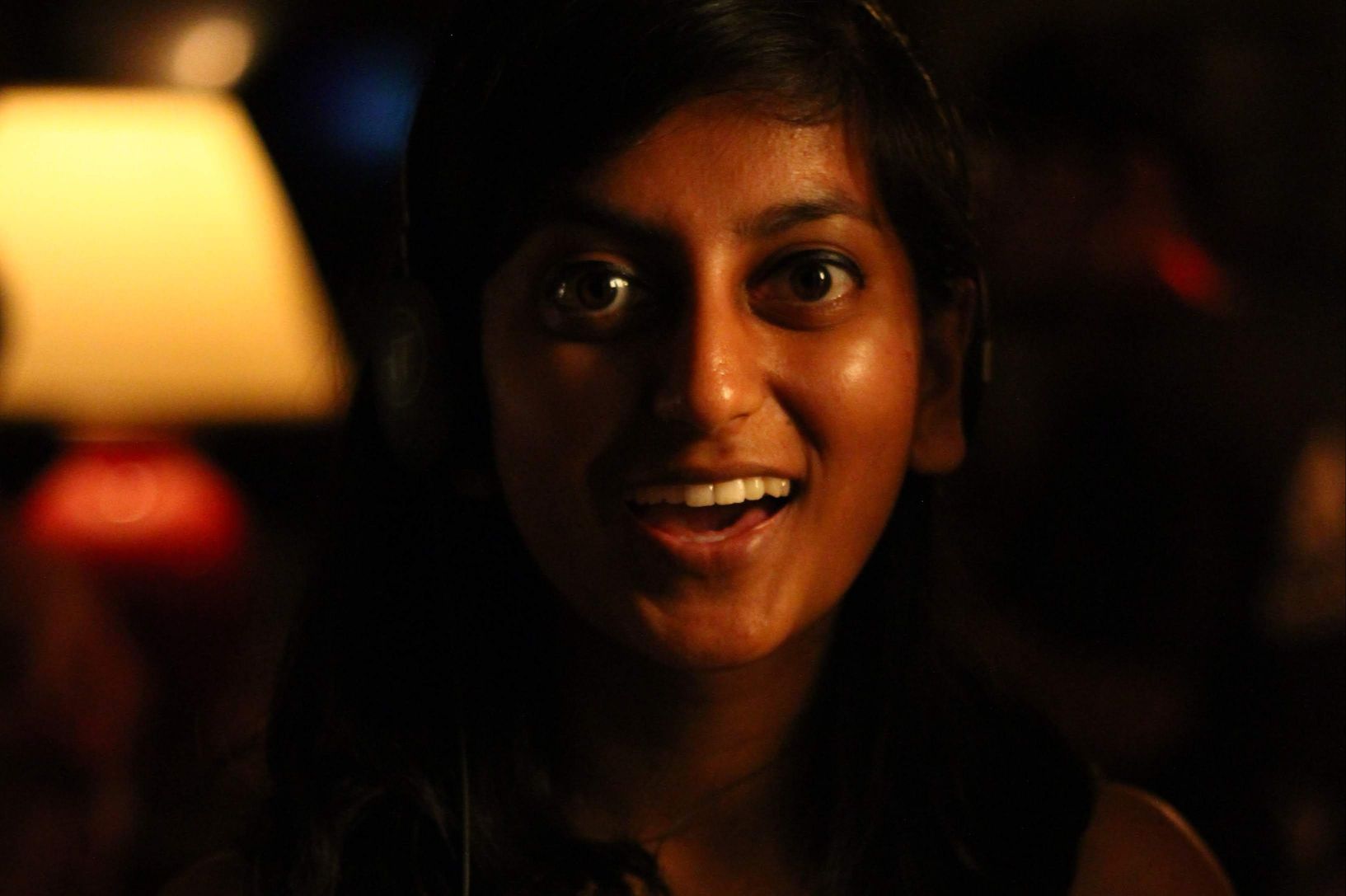
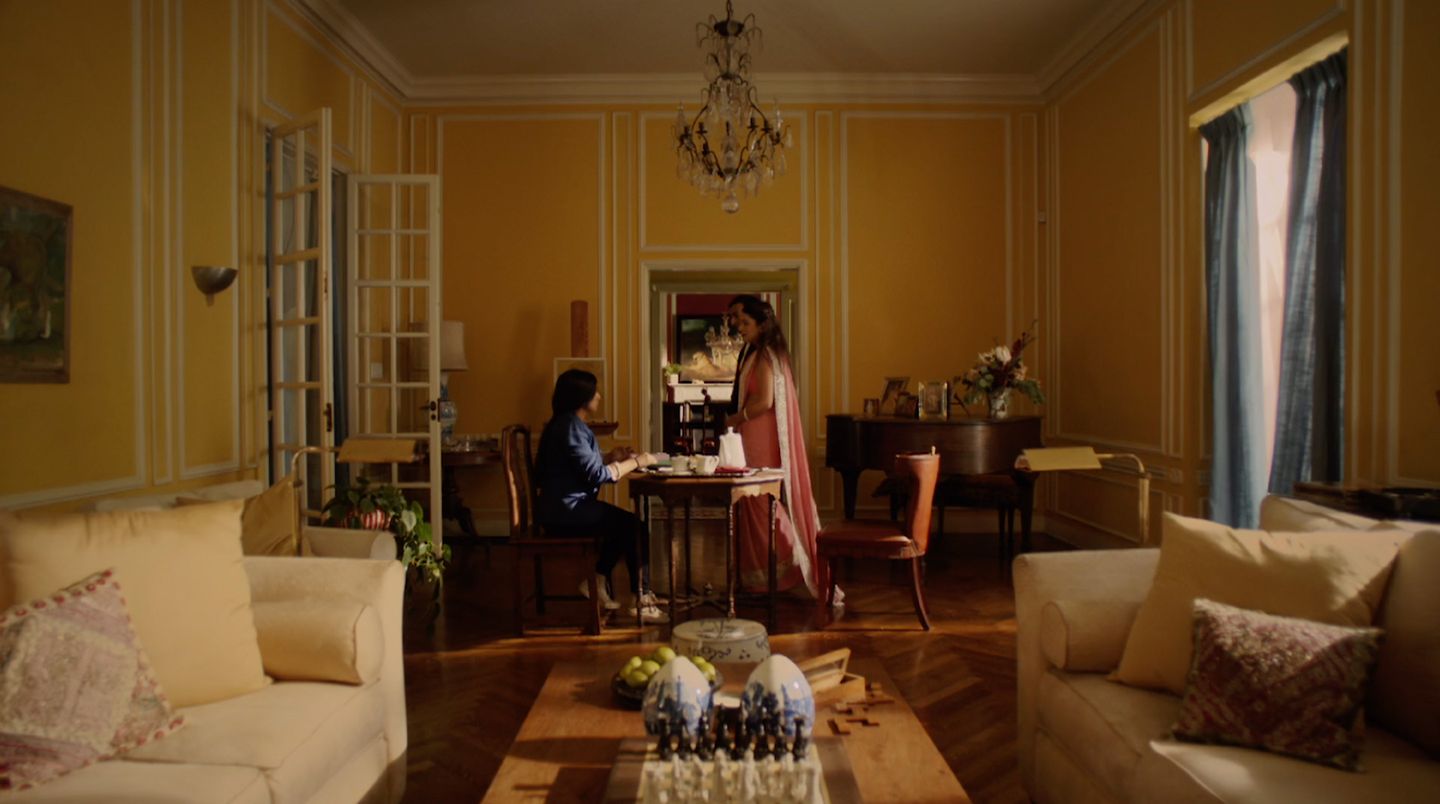
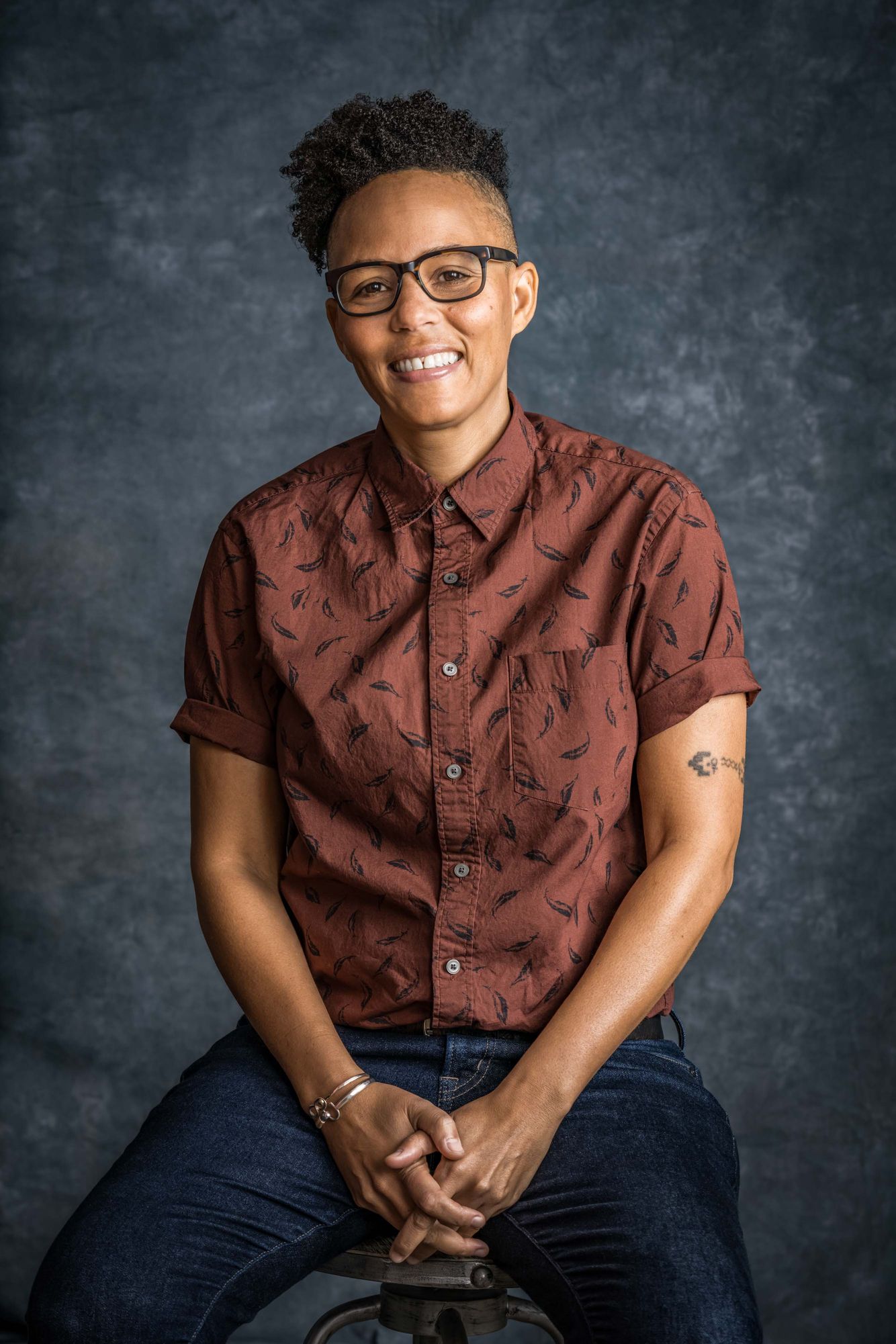
Robin Cloud – Director of "2 Dollars"
Robin Cloud is a Los Angeles-based comedian, writer and director. Her first narrative short, OUT AGAIN, was executive produced by Refinery29 as part of their Shatterbox anthology and premiered in March 2017, receiving over 2 million views. OUT AGAIN has screened at over 45 film festivals and received rave reviews. Her docuseries, PASSING: A FAMILY IN BLACK & WHITE, executive produced by Topic/First Look Media, premiered in July 2019.
Cloud is a 2017 Kickstarter Creative Fellow and a graduate of Lena Waithe’s Hillman Grad mentee program. Her AFI Directing Workshop for Women short, 2 DOLLARS, will premiere in the spring of 2020.
Cloud has been featured in The New York Times, The Washington Post, Diva Magazine, GO magazine’s “Top 100 Women We Love,” Noire Magazine and Time Out New York’s “Quote of the Week.” She graduated cum laude from Howard University’s School of Communications, where she studied film under Haile Gerima, and studied cinematography at the School of Visual Arts. Her production company, Cloud Creative Media, was launched in March 2016 and focuses on creating independent narrative and documentary films and series.
FTW: Was there a film that sparked your desire to be a director?
Robin Cloud: Julie Dash’s Daughters of the Dust. I remember seeing that in the theater and it was like watching a dream for two hours.
What inspired your short?
I draw a lot from my personal life and my last day job was working as a property manager. I hated it. I lasted six months, but the characters there were just unbelievably rich and made it into my movie. I wanted to make a film that was about taking a leap of faith because right before I quit that job, I was like, “I’m going to be a filmmaker and I need to focus on that and take this chance.” I had made another short, “Out Again,” and it was starting to gain traction. As those things happen, you have to be available and ready, so I quit. “2 Dollars” is this weird homage to all the terrible microaggressions that have happened to me over many years of working in an office environment. I also love the movie Office Space and I wanted to make a queer, Black version of that.
What kinds of stories do you want to tell and how do you want to shape the world with your art?
I’m interested in telling stories about queer people and Black folx and people of color. The feature that I’m working on now is a queer, Black, coming-of-age story. I’ve been writing a show about a queer couple navigating friendships as adults in LA and what that world is like. I want to show Black people and queer people just in the moments of living life. I want to get past the coming out story.
What’s the best piece of advice you can give to aspiring directors?
Write what you know because we're all so different. Your life experience is your gift to the world as an artist. It's what makes your voice unique. I always reach for the personal because I feel like that has more power in it. Pour your heart out on screen.


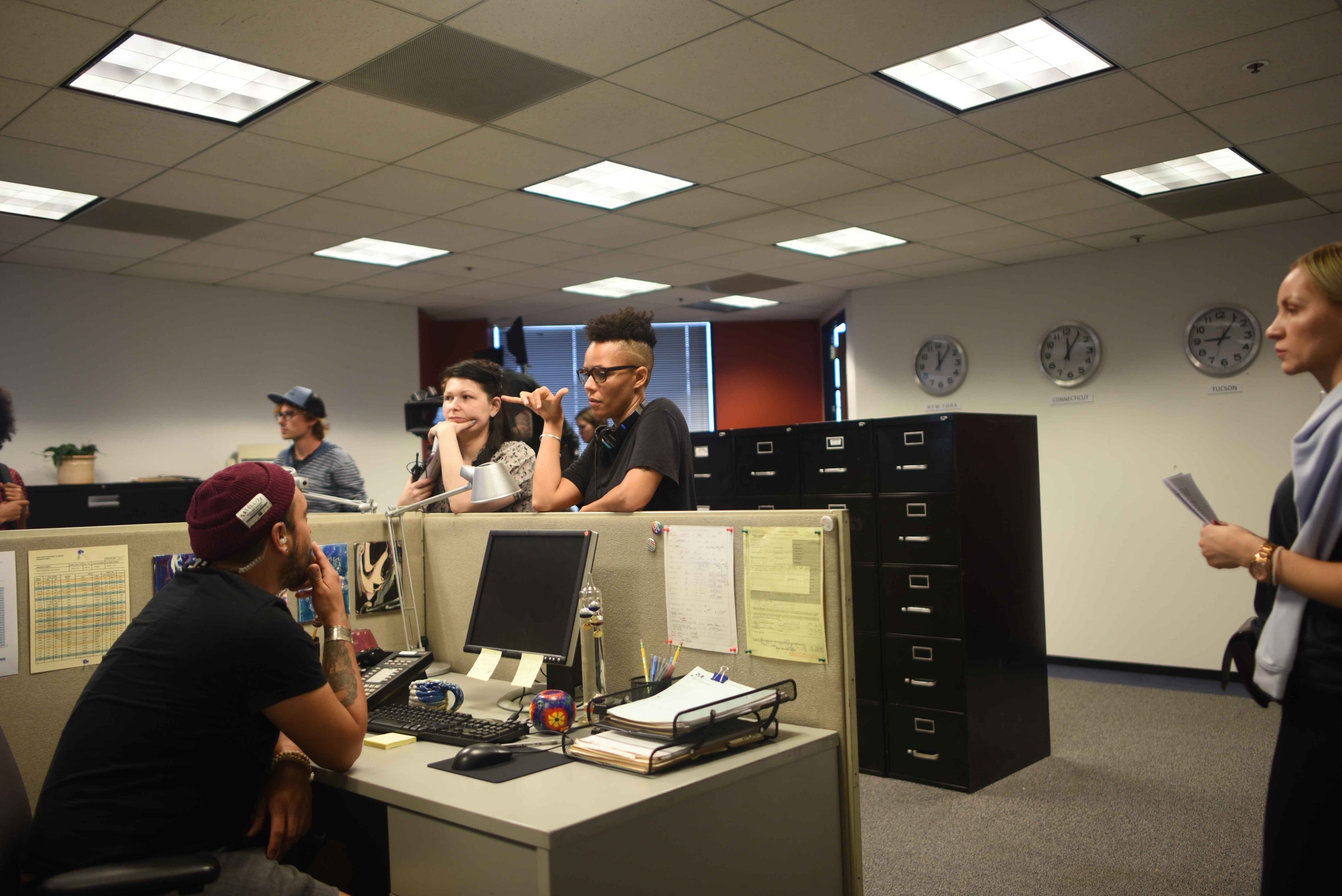
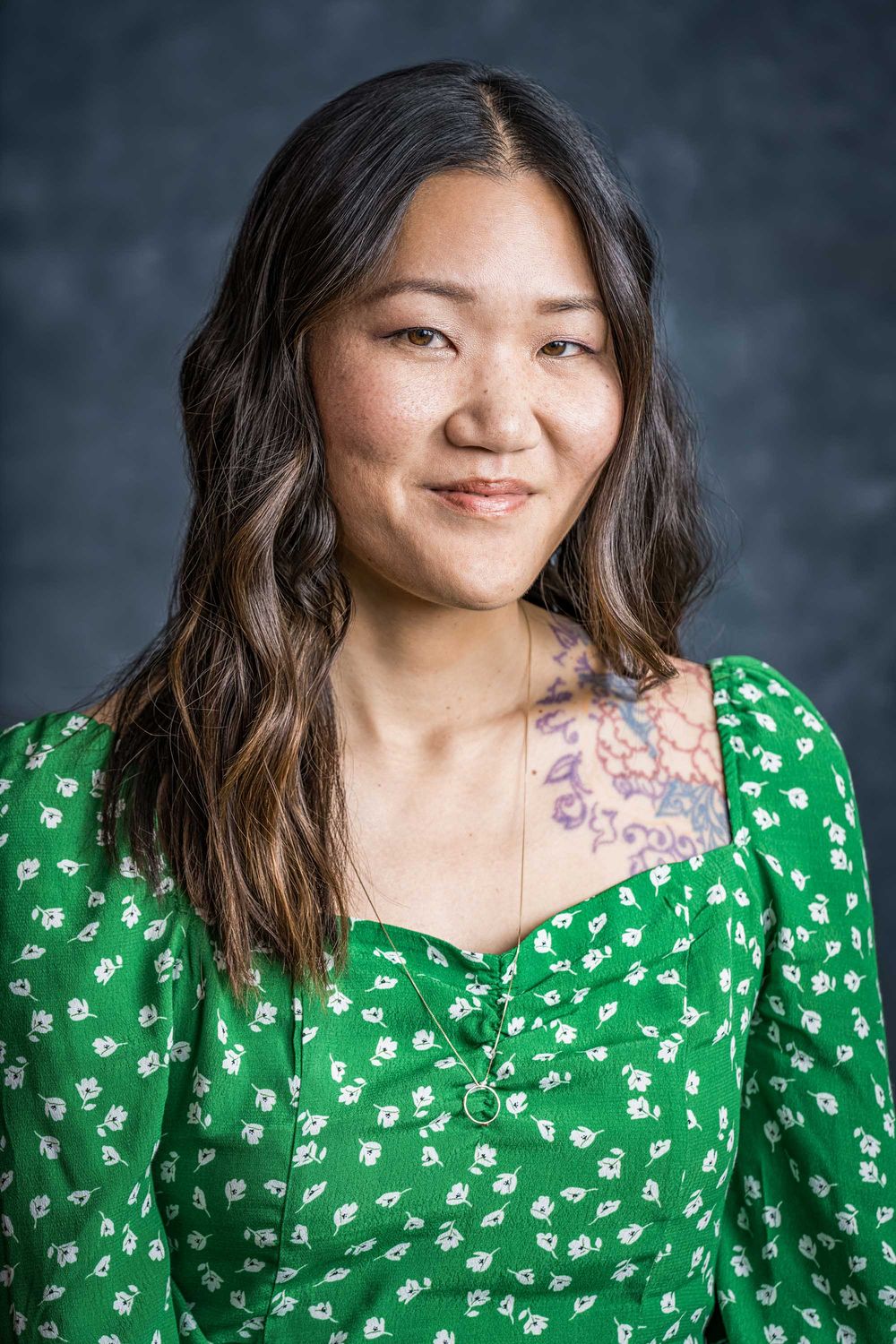
Tiffany Frances – Director of "Hello from Taiwan"
Tiffany Frances is a Taiwanese American film director and writer working in commercials, music videos and narrative film. Originally from and currently living in Los Angeles after a decade of living in New York City, Frances attended UCSD for undergraduate studies in Media with a minor in Theatre and went to Art Center College of Design for her MFA in Directing.
Her background working as a photographer, producer, casting director and editor on commercials and music videos has made her a well-rounded director. She was selected for SHOOT Magazine’s 2018 New Directors Showcase, where a trailer of her short film WHAT I WISH YOU SAID screened at the Directors Guild Theater in New York. Her short film for National Geographic, MOVEMENT, garnered over 1 million views on Facebook. Her films have screened at La Femme Festival, Nitehawk Shorts Festival, Brand Film Festival and Berlin Fashion Film Festival, and have been curated online by the Ladies with Lenses Vimeo Channel and Film Shortage. Her directing and photography work have been featured on Stereogum, Paper Magazine, Fast Company, Blackbook, The Fader, the Muse, Anthem Magazine and Ladygunn.
Her commercial clients include National Geographic, Citibank, Thrillist, Acura, Glossier, Dia & Co, Tanya Taylor, Montiel and Jonesy. She is a recipient of The Future of Film is Female fund in partnership with MoMA. She is currently developing a TV series based on her AFI Directing Workshop for Women film HELLO FROM TAIWAN, as well as a feature film titled “My Sisters.”
FTW: Was there a film that sparked your desire to be a director?
Tiffany Frances: Eternal Sunshine of the Spotless Mind or Girlfight. They’re different, but they both showed me that I can make films as weird, imaginative, poetic, or even as feminine as I want it to be.
What inspired your short?
The story is based on one of my earliest memories as a child. I grew up as the youngest of three sisters in San Jose, California. My parents were going through a separation and my dad decided to take my two older sisters with him to Taiwan. And then about a year later he brought them back. I remember meeting them at the airport and thinking, “Who are you guys again?”
I wanted to explore that separation along with the cultural gaps that we were experiencing as a family. My dad passed away a few years ago and ever since then, I’ve been exploring stories that have a lot to do with my upbringing and starting to see things from my parent’s perspective. They were immigrants from Taiwan to America in the ‘70s, and there are so many cultural and generational choices they made that have affected my life. It’s a world away from me, and I’d love to dive into it.
What’s the best piece of advice you can give to aspiring directors?
Be fearless and never apologize for who you are and how that translates into your work. Alongside that, I have a few tippers which are: do the work, focus on your own path, watch a ton of work regularly, read the trades, write your ideas down.
At the same time, breathe, journal, and spend time experiencing life and listening to others. There’s so much pressure to always be outputting but I think the inputting is just as important. People forget that when things are happening at such a fast pace.
